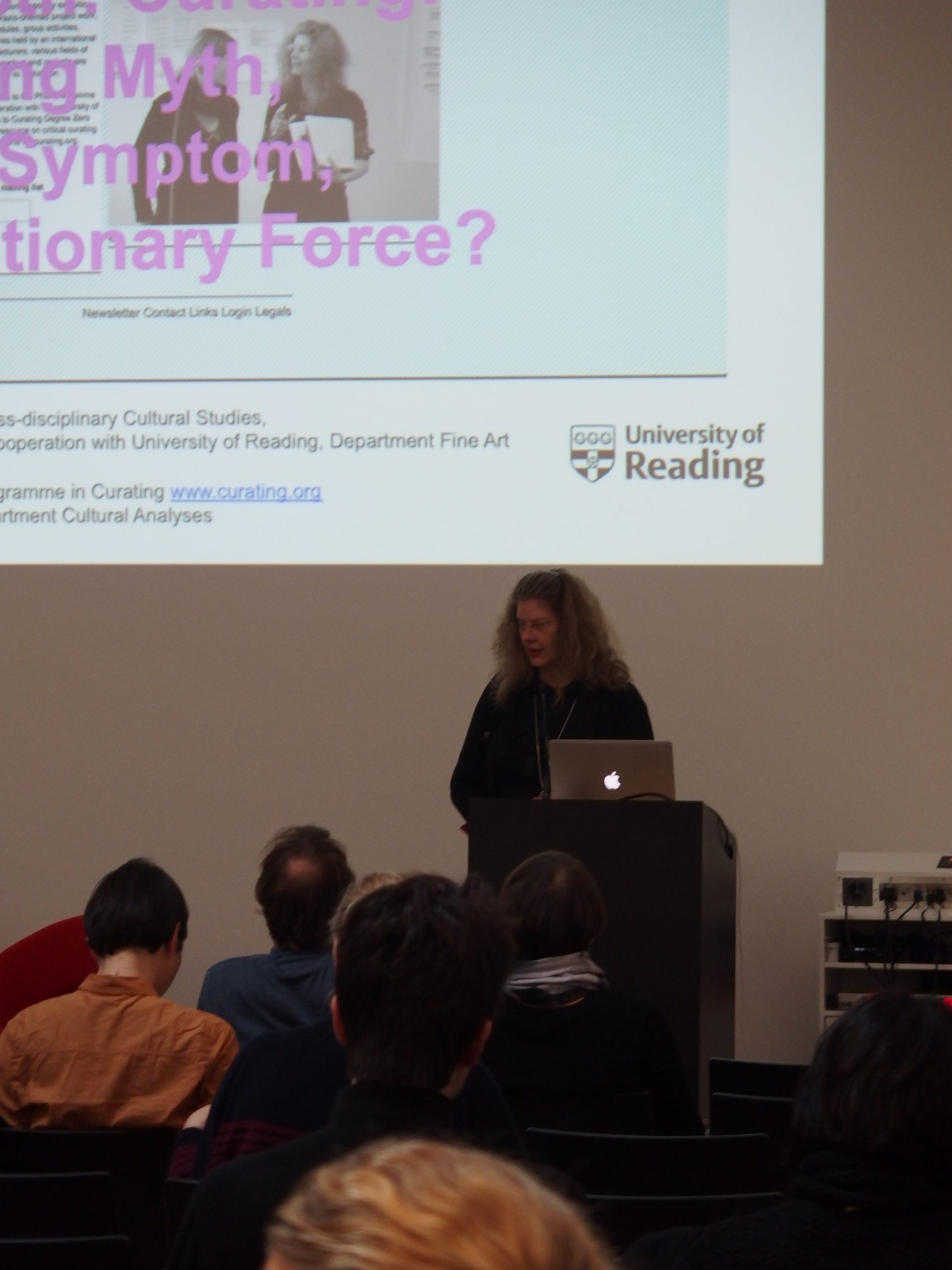
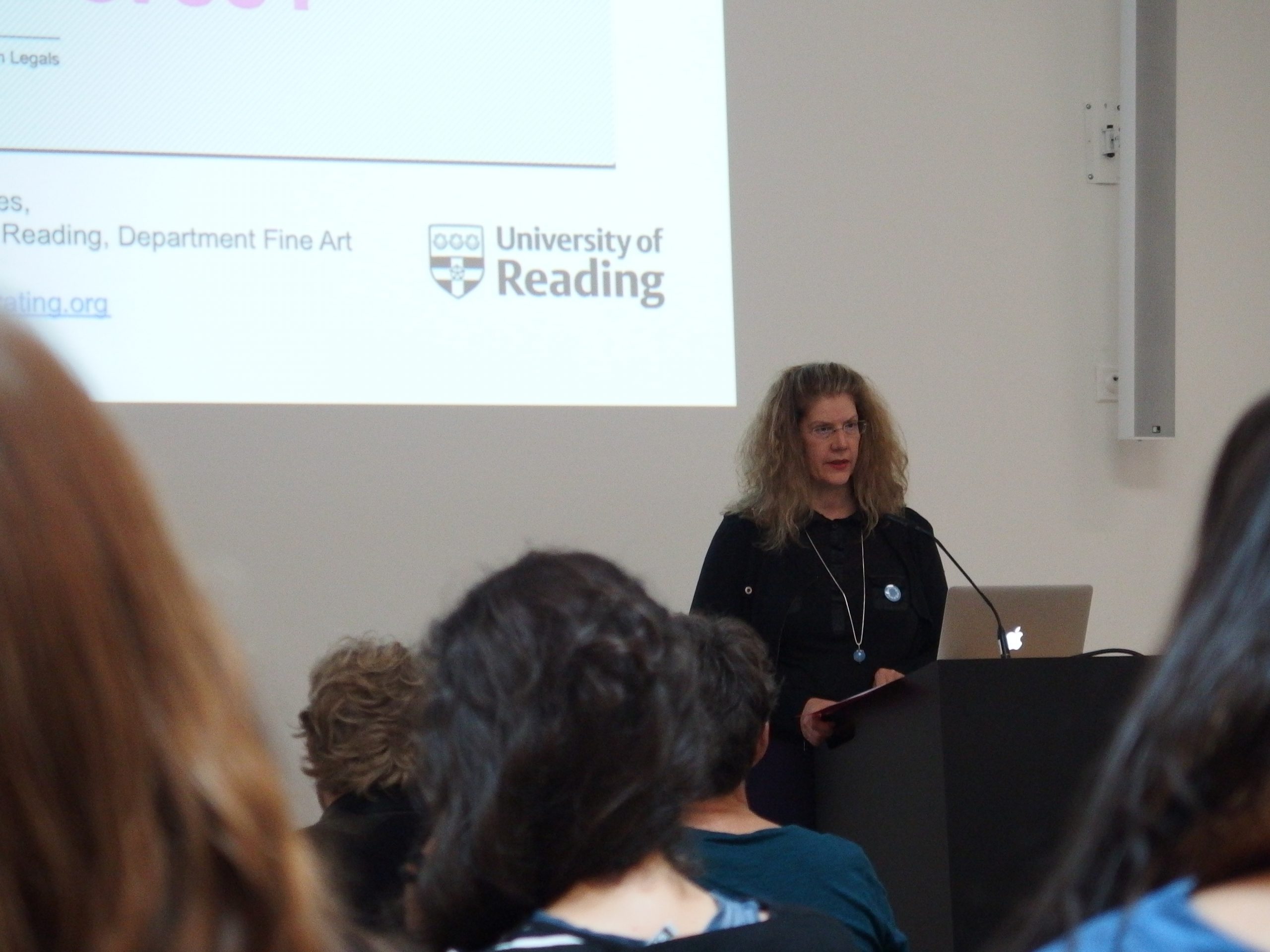
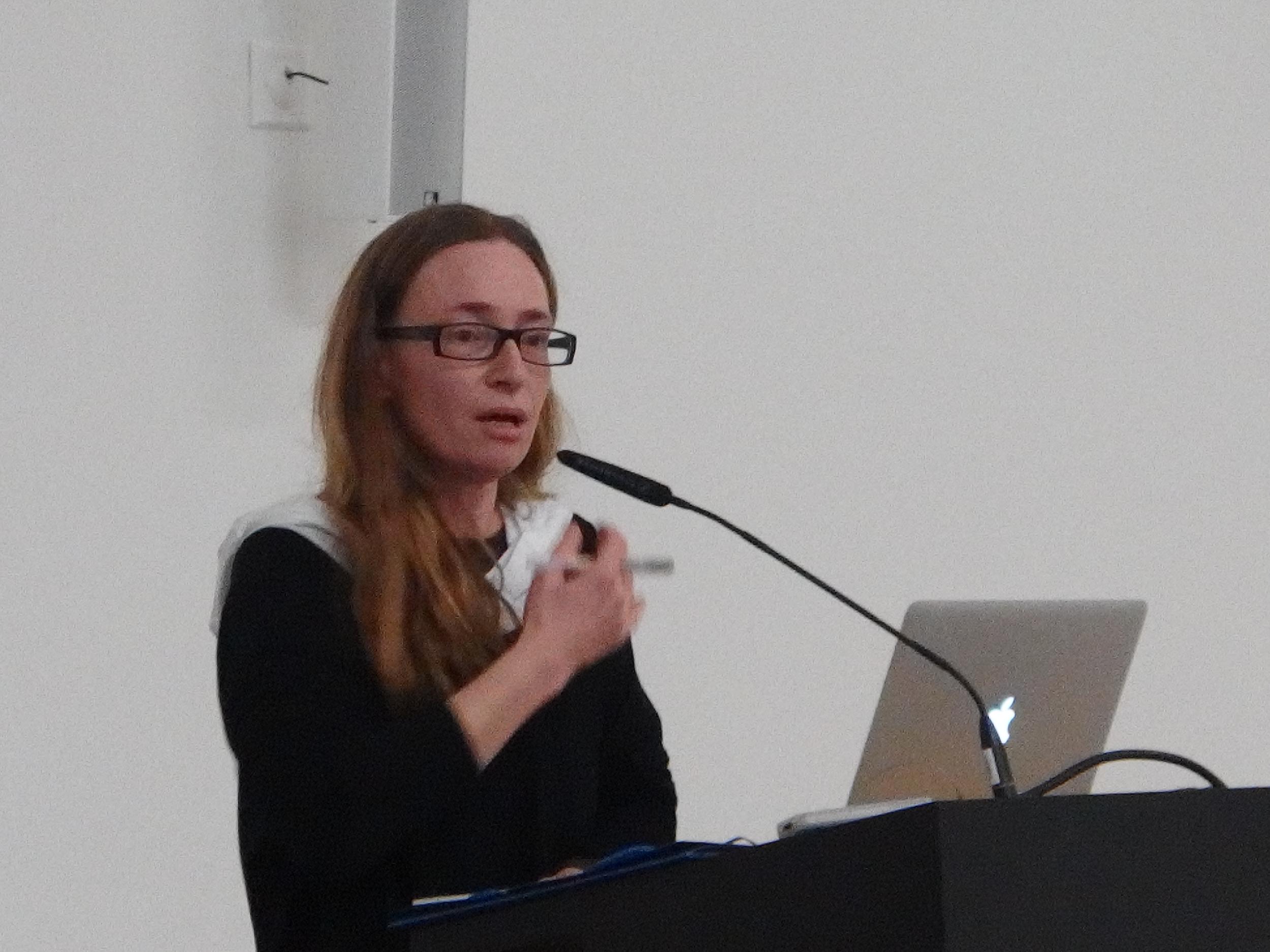
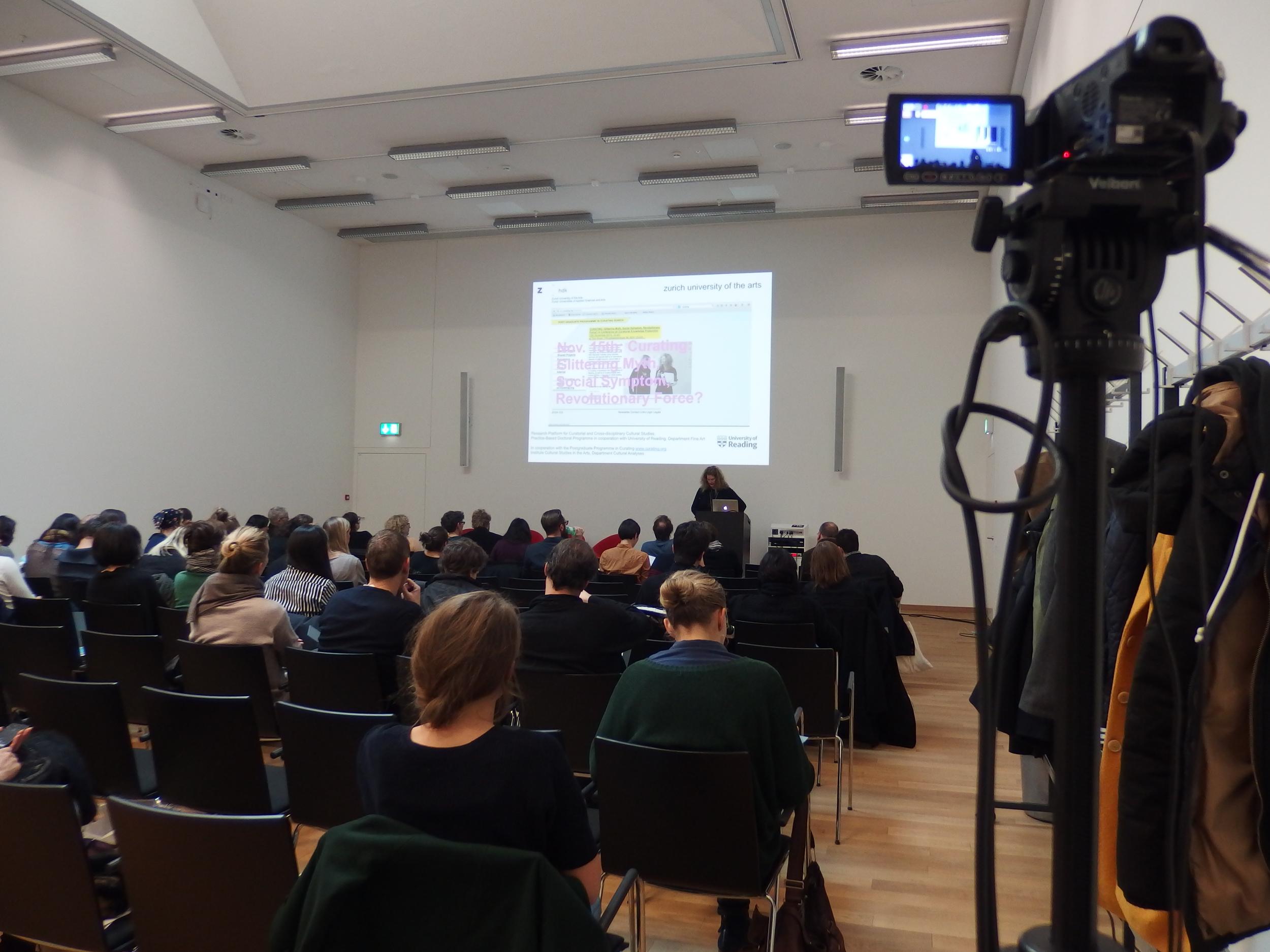
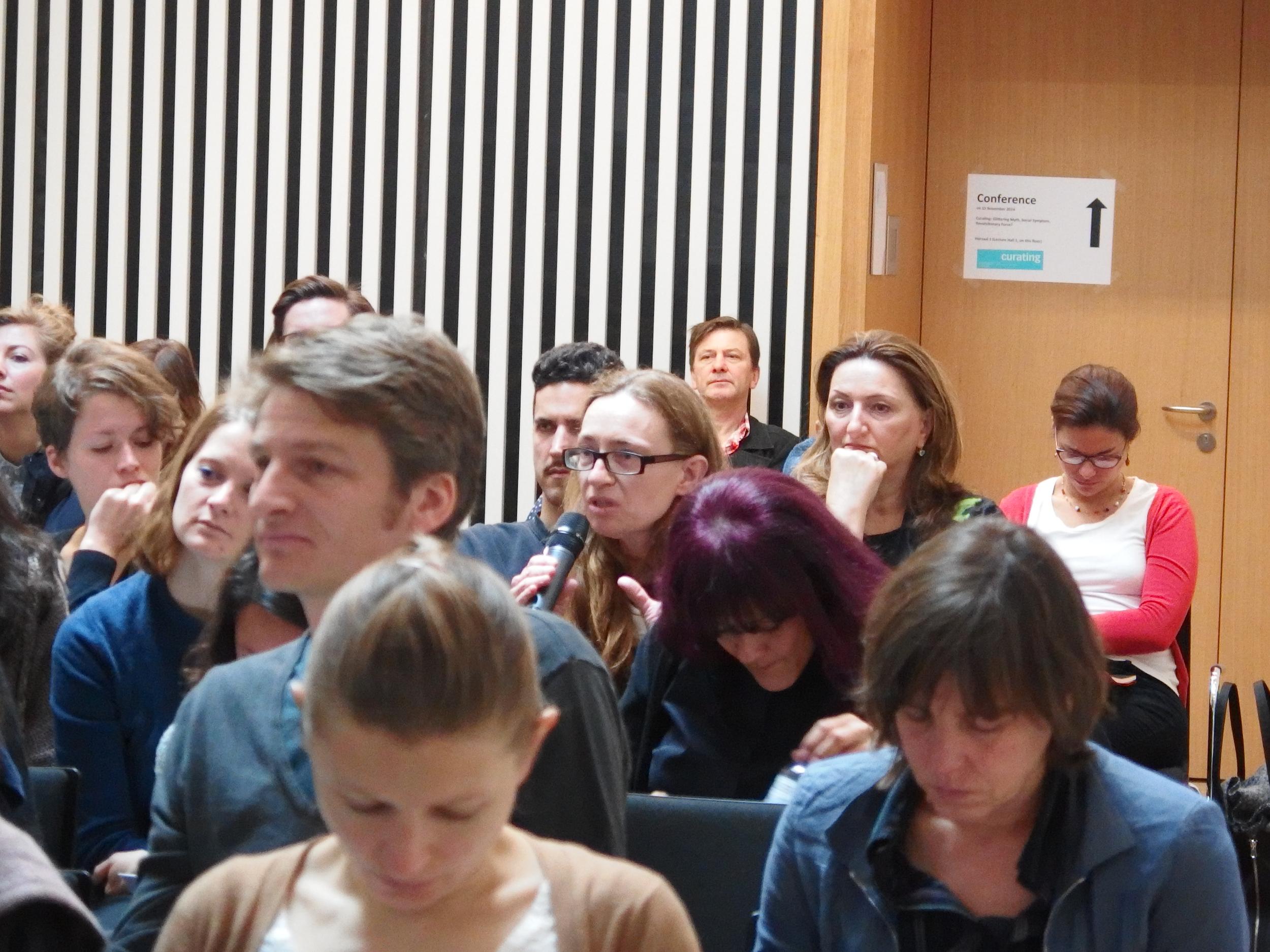
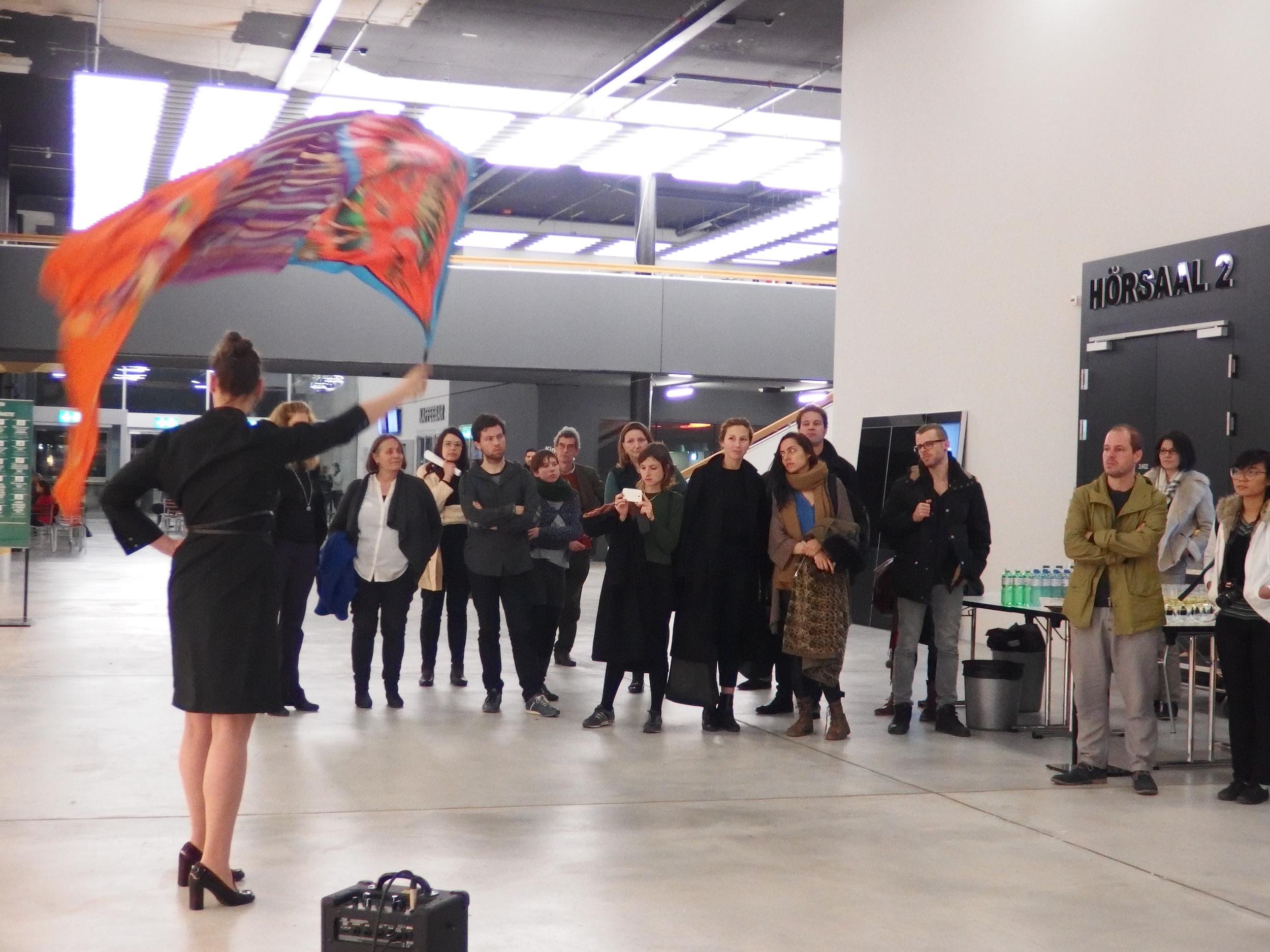
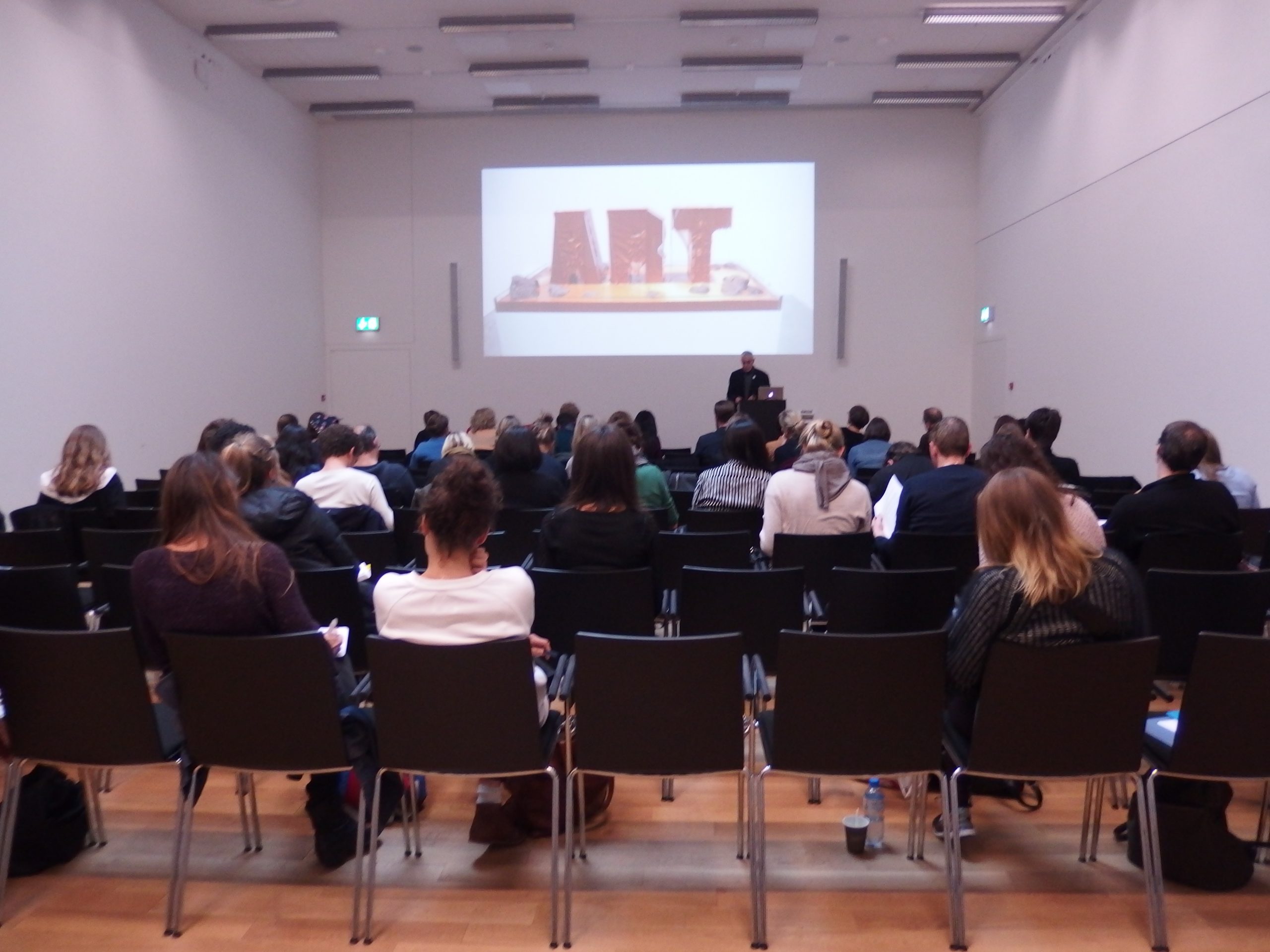
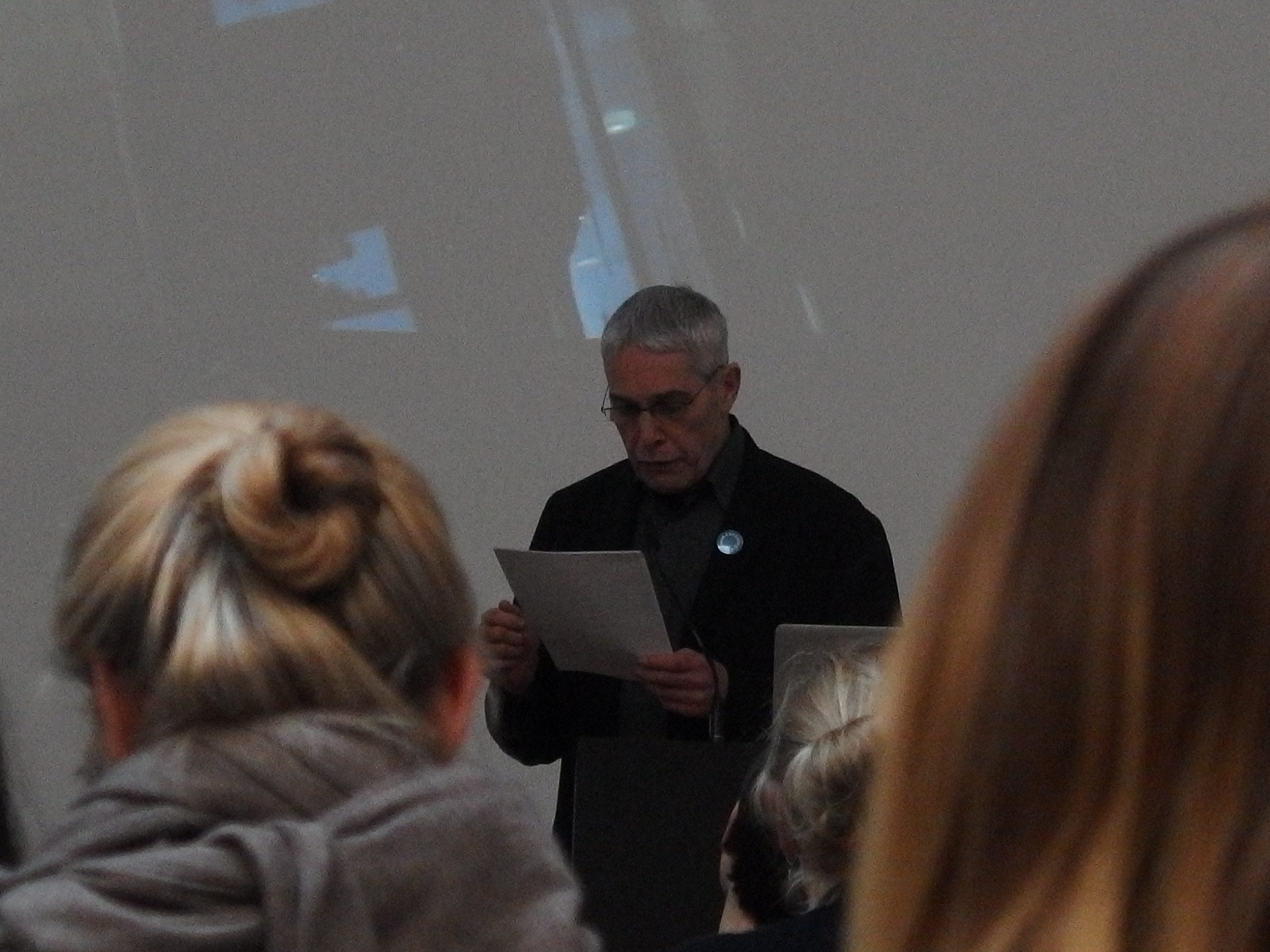
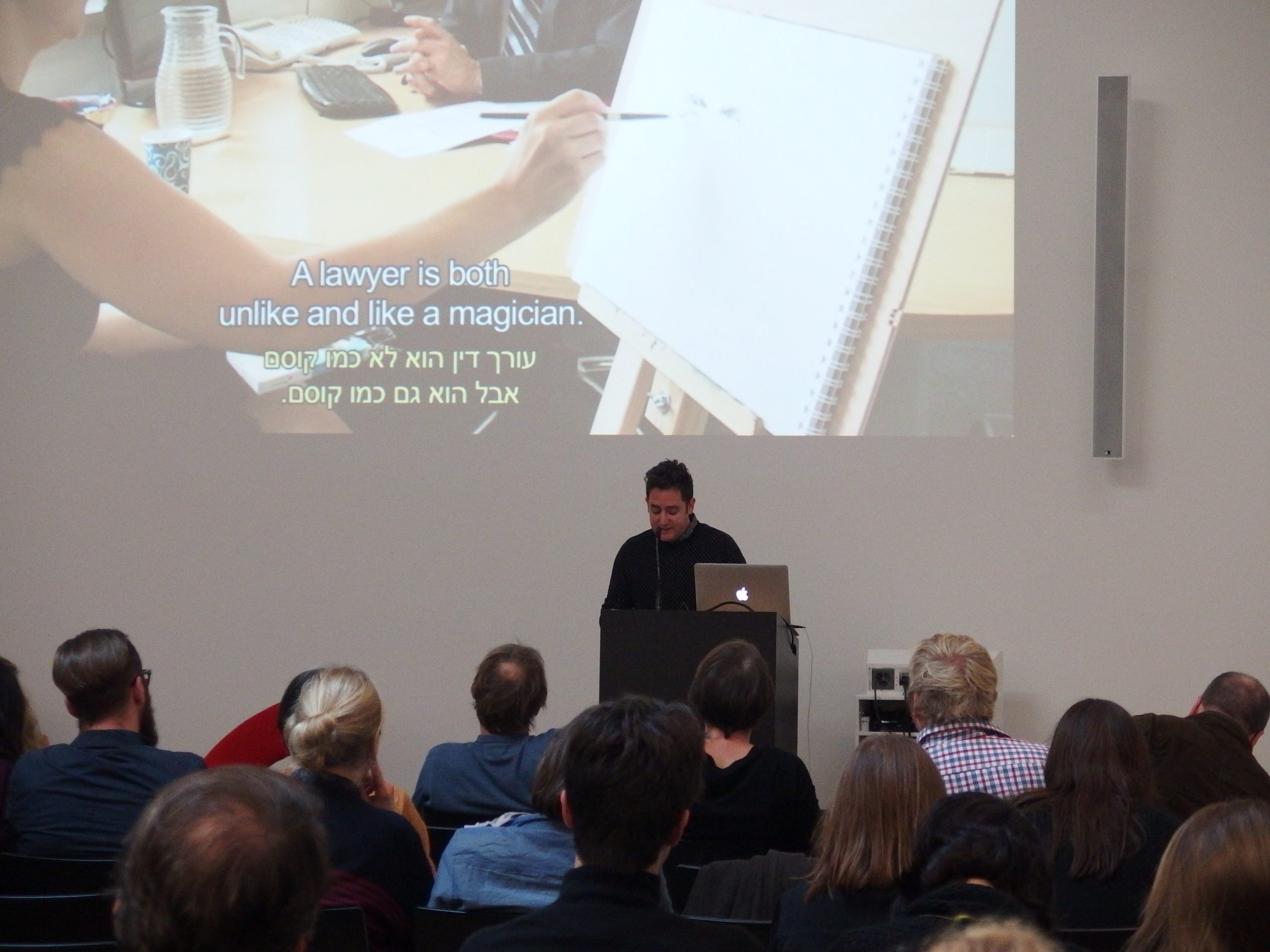
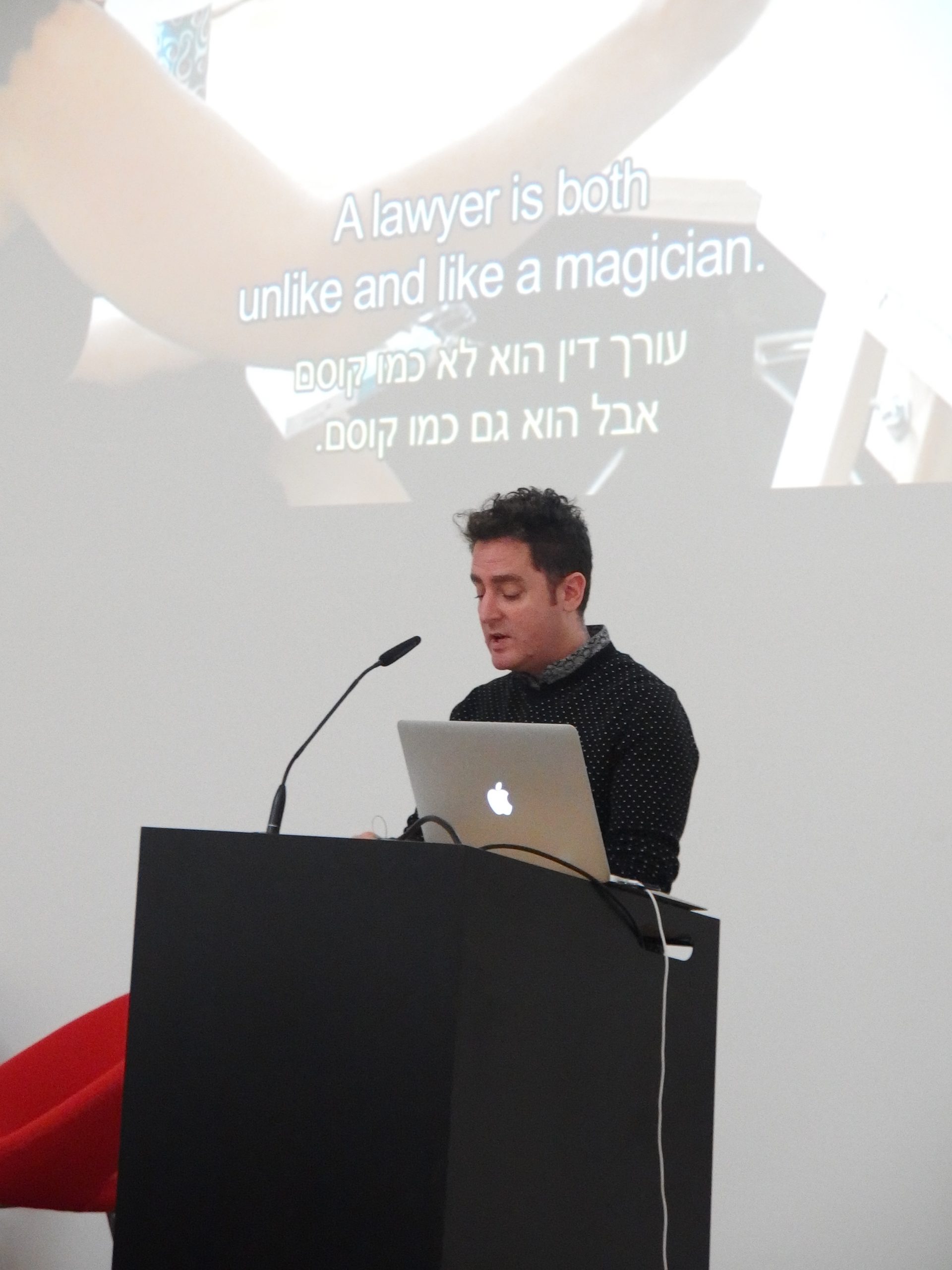
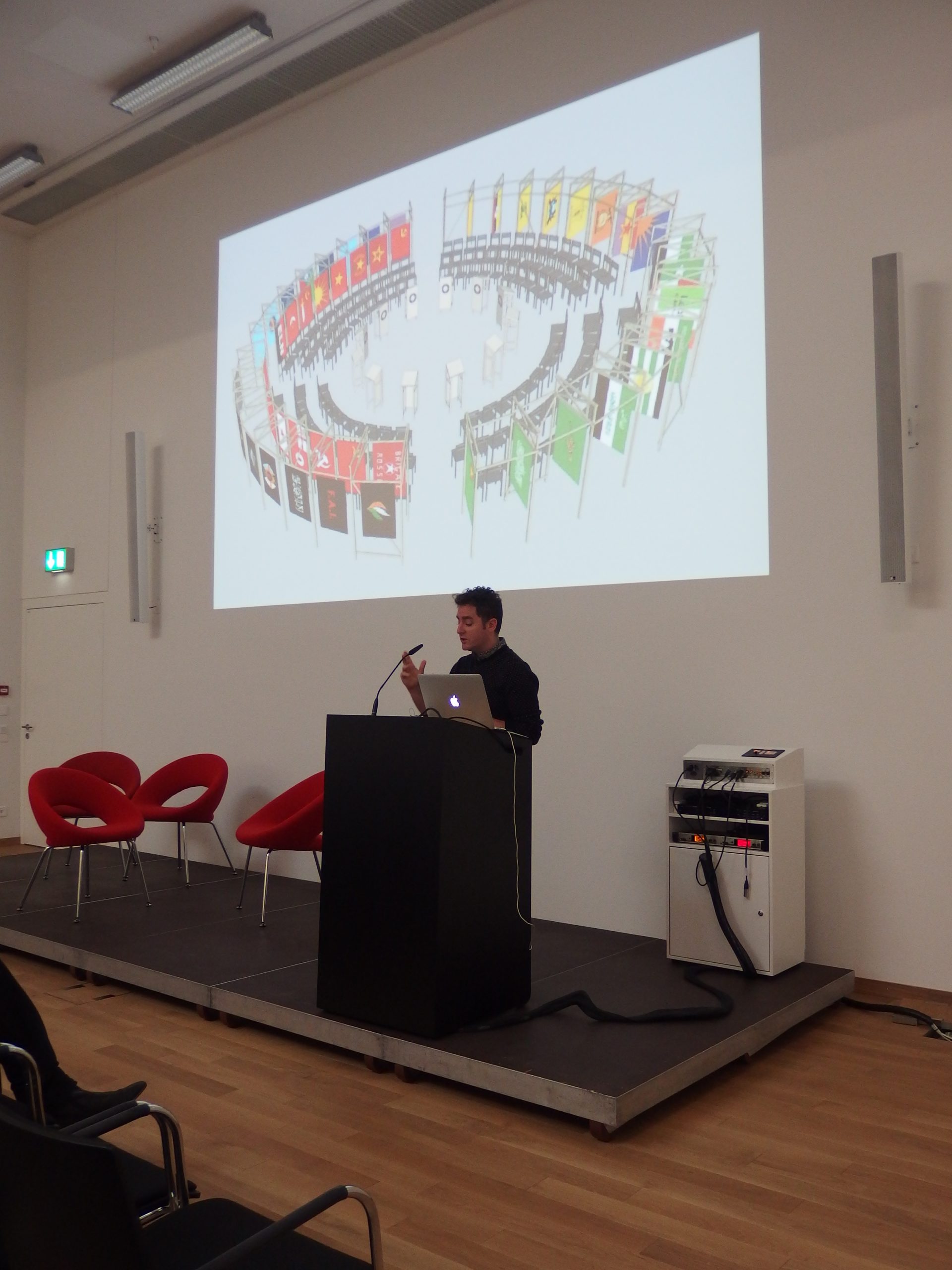

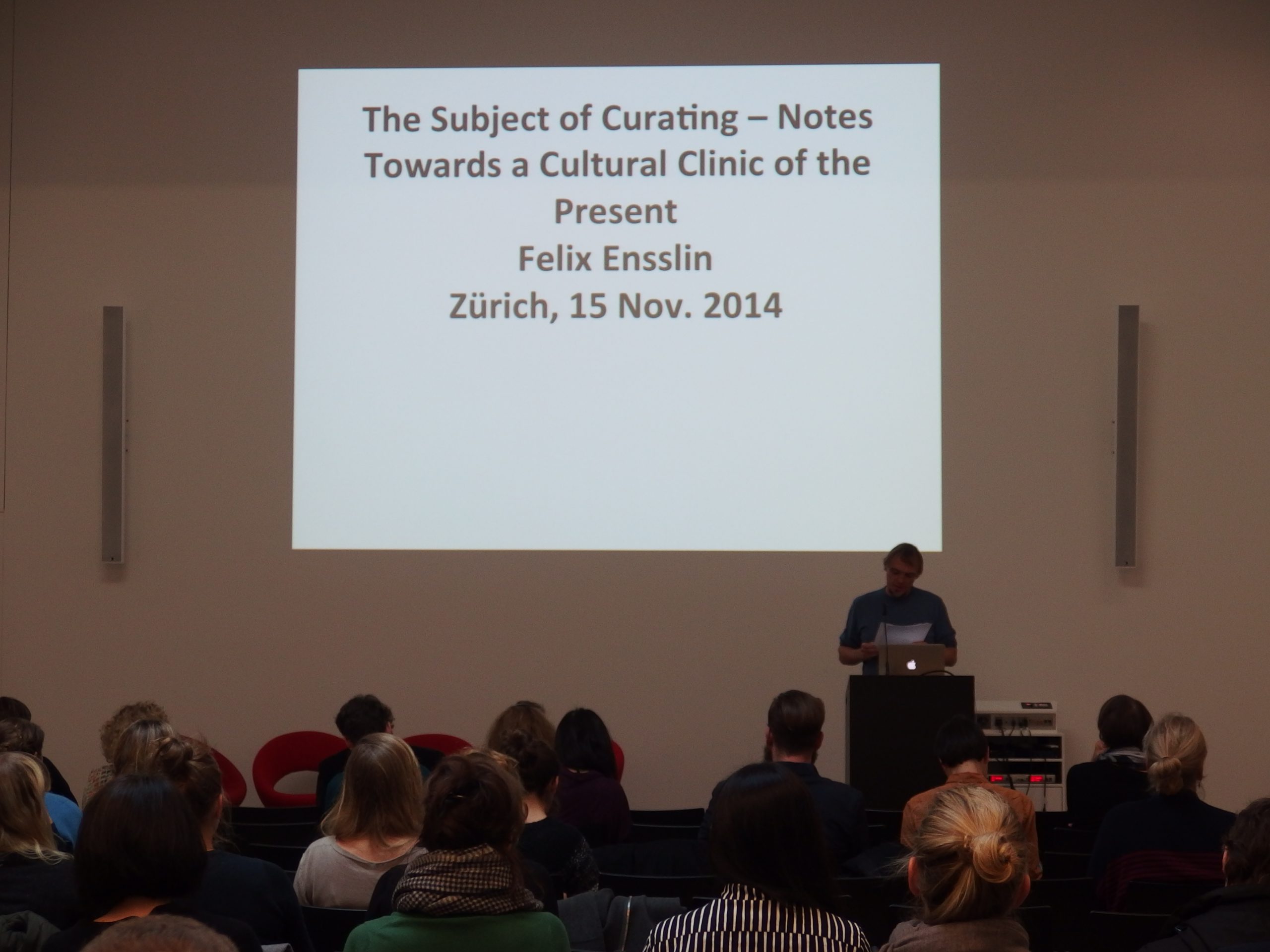
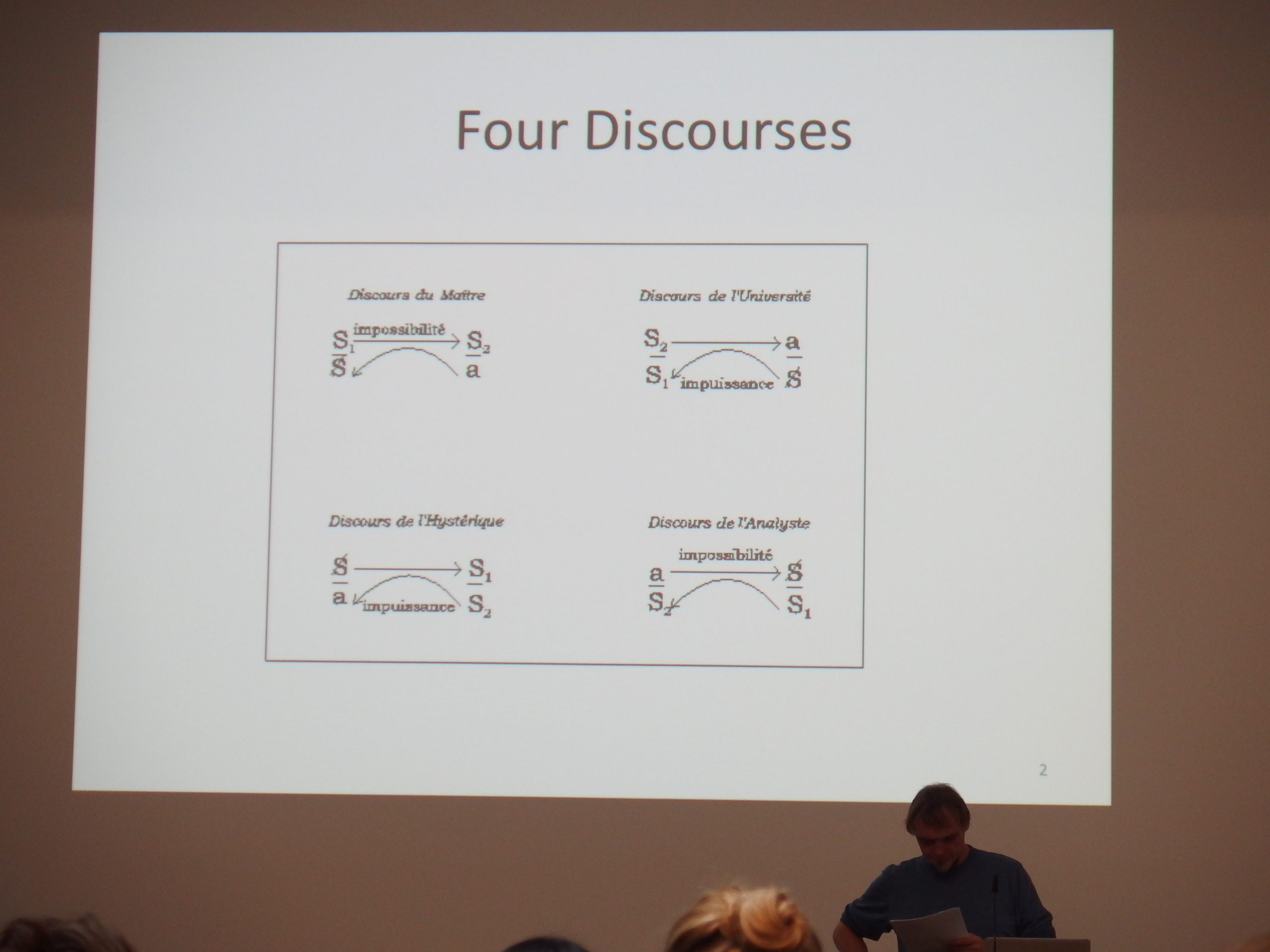
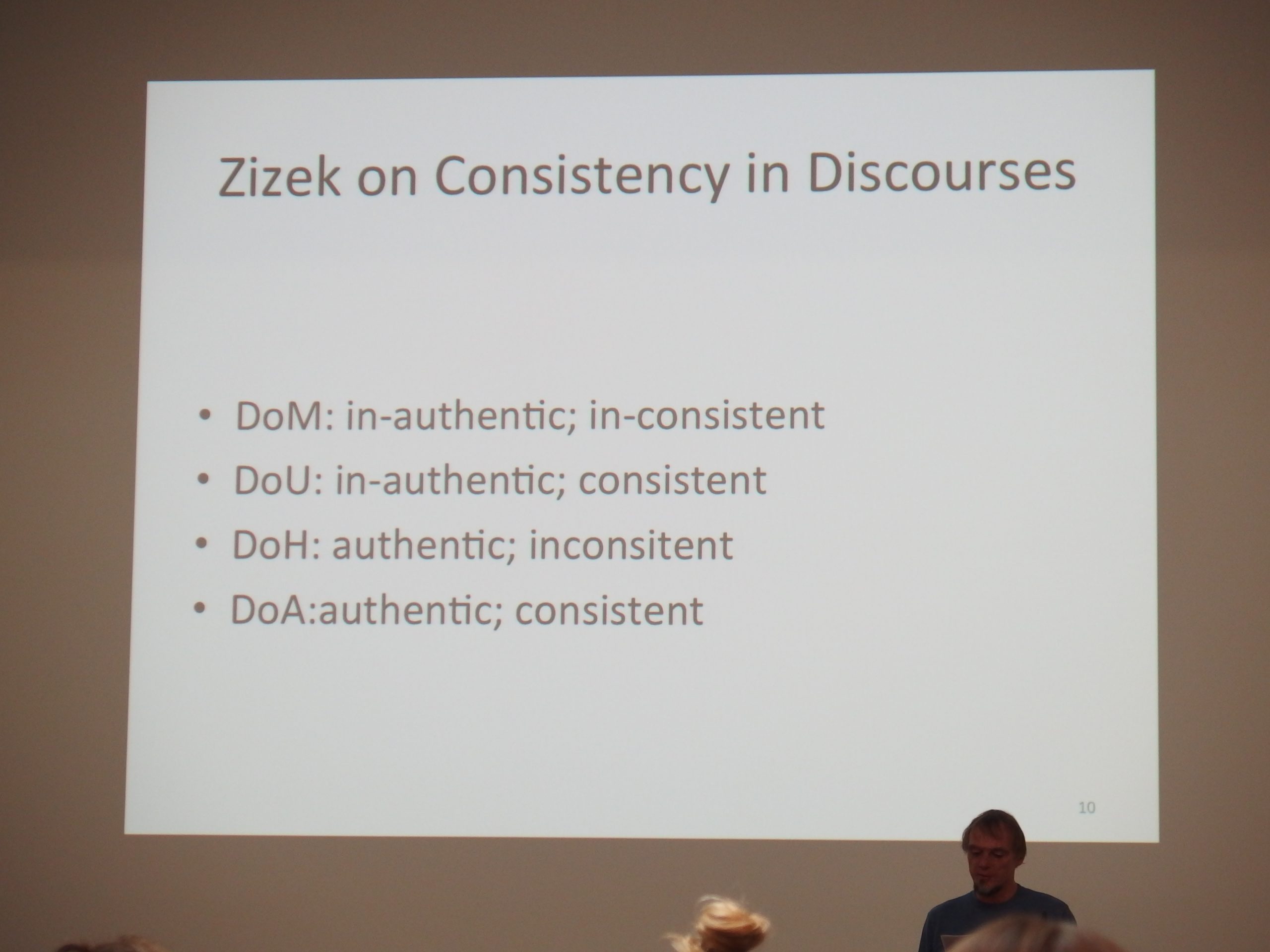
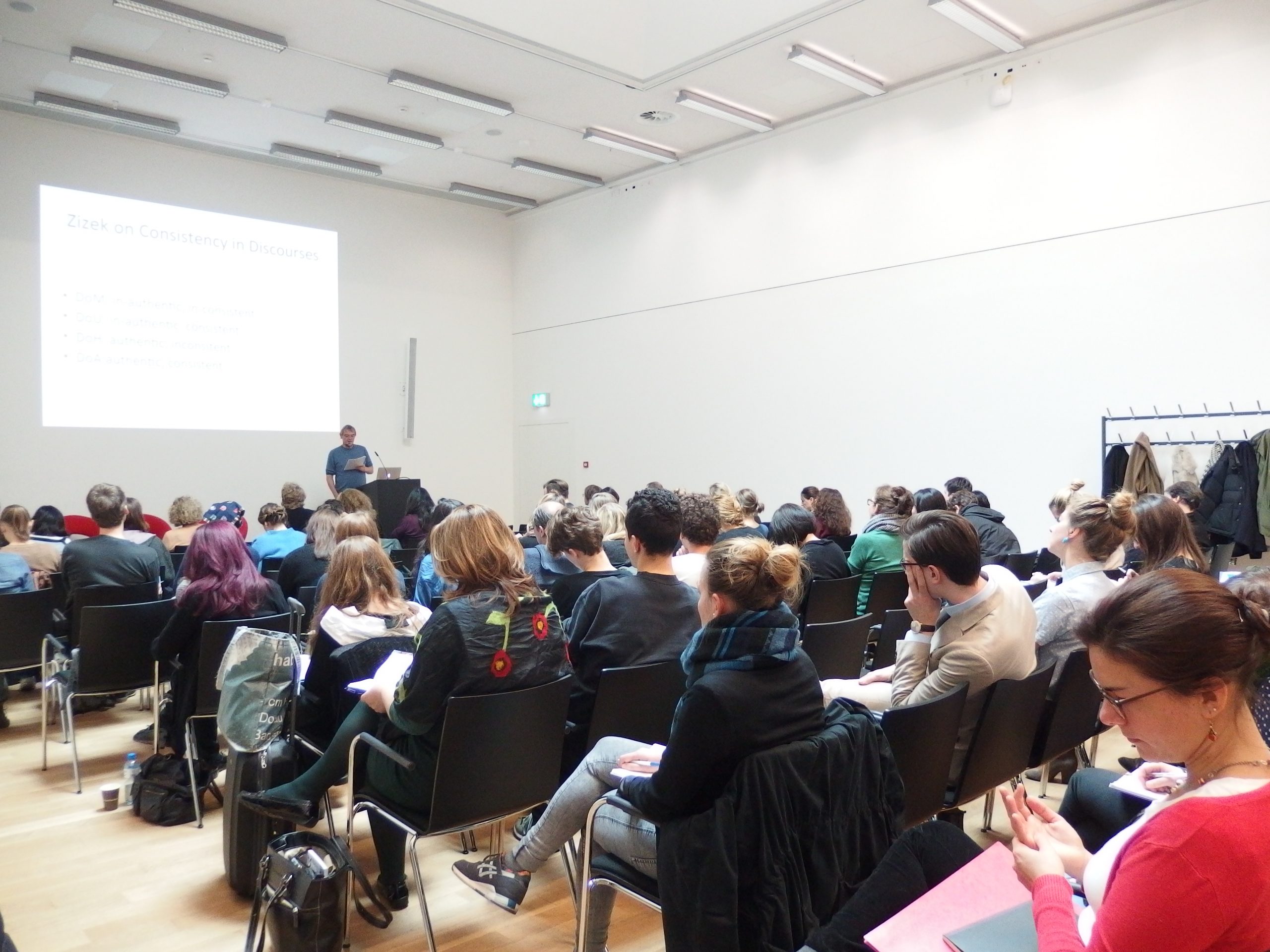
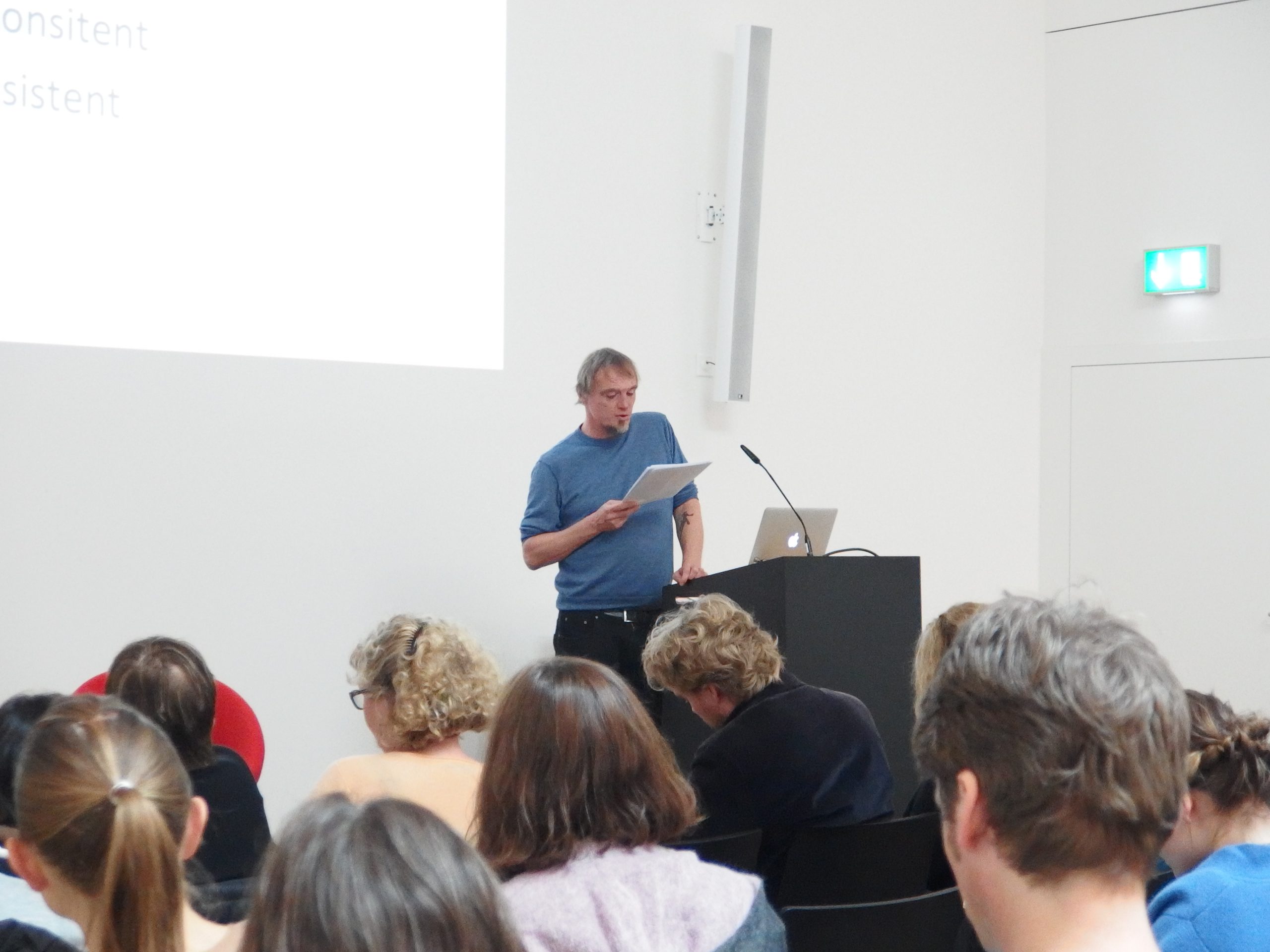
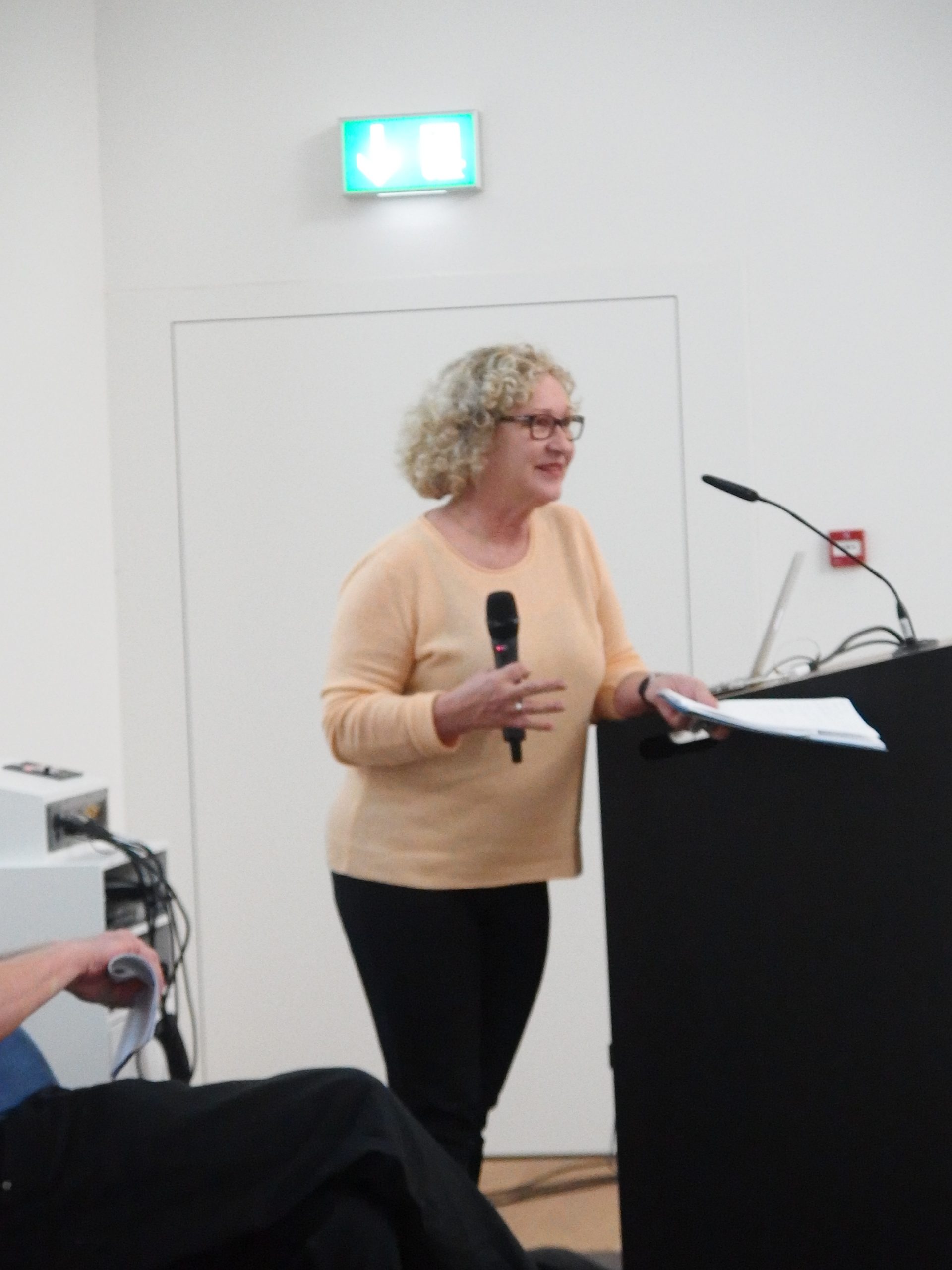
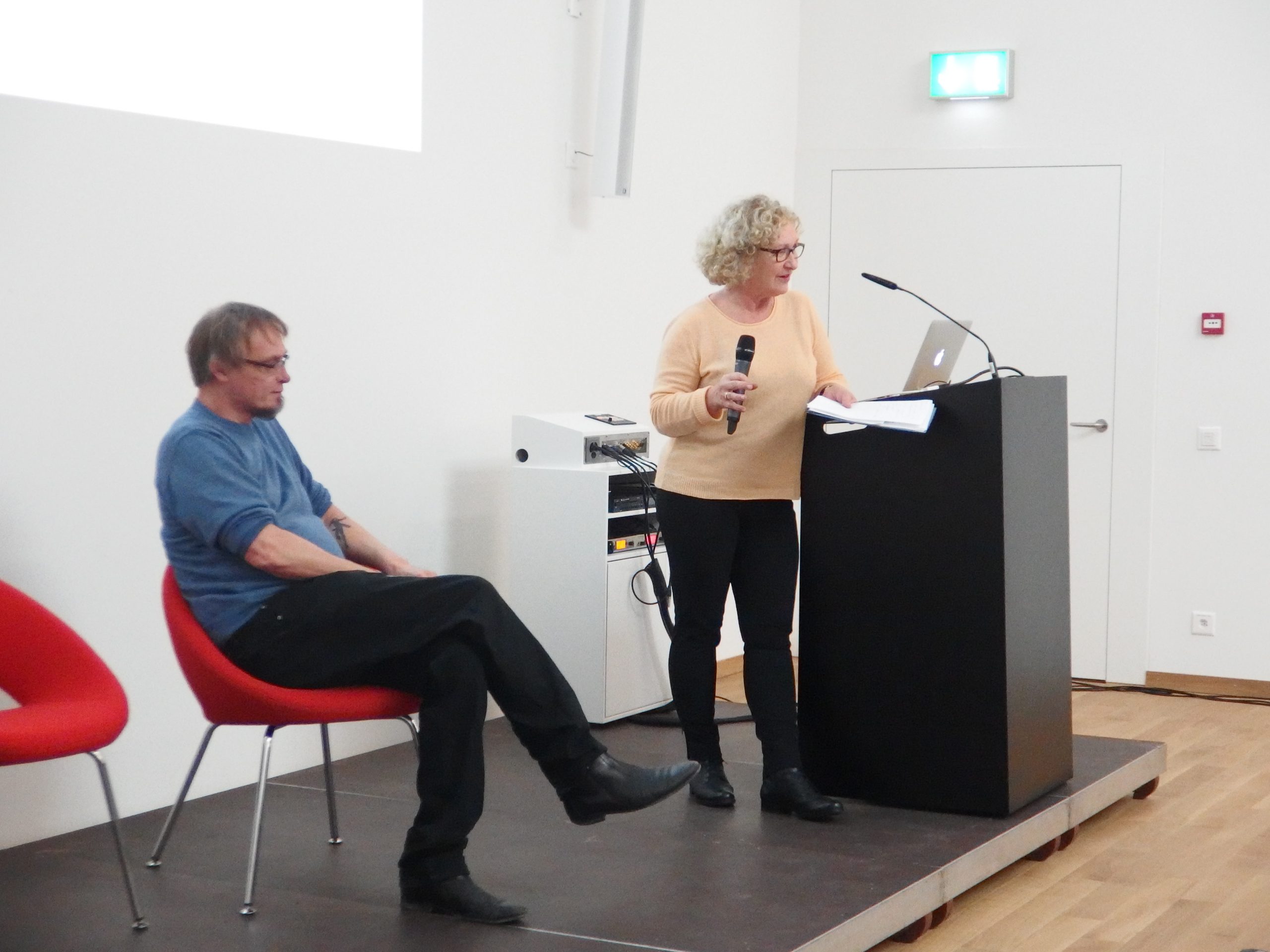
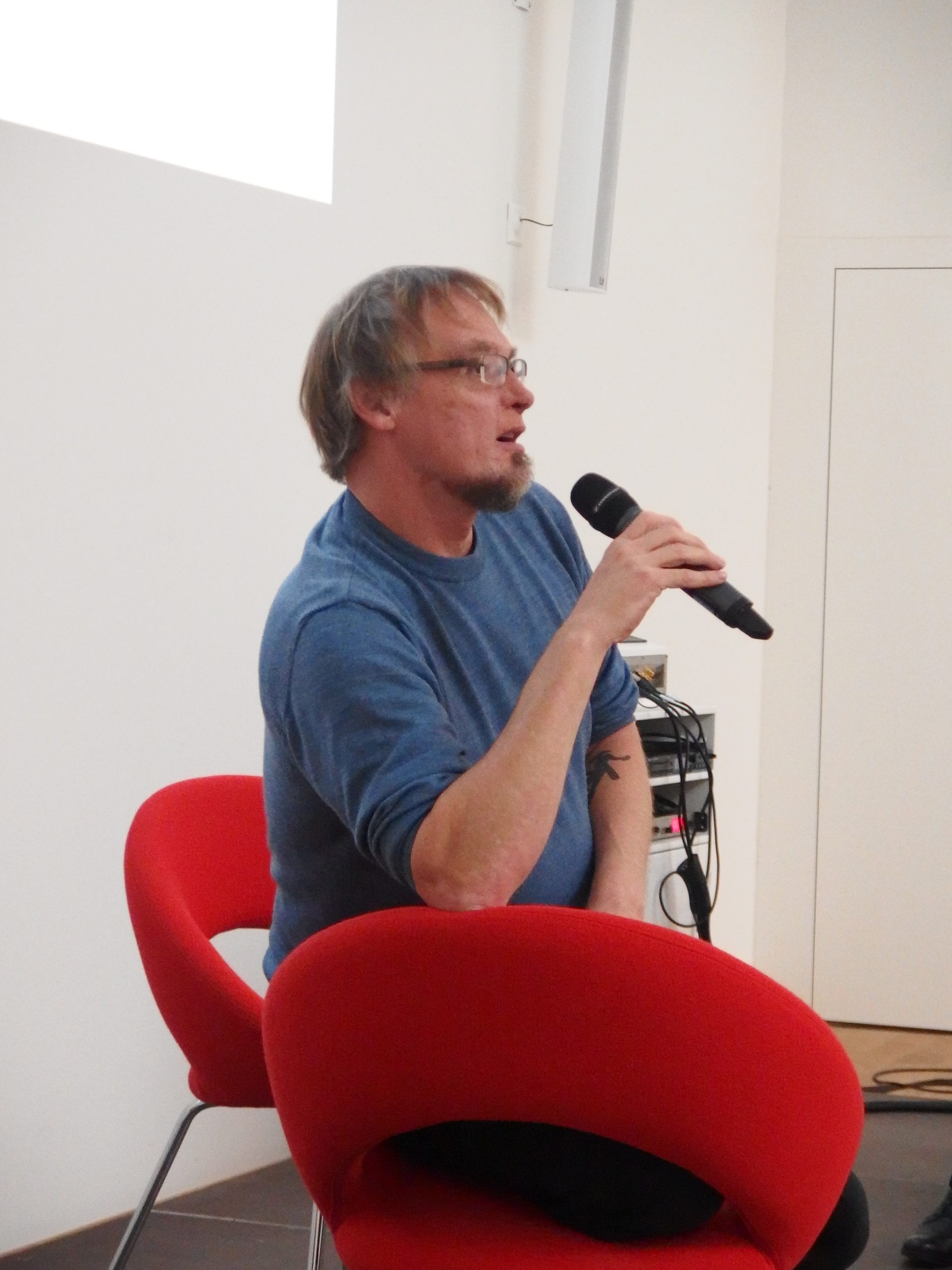
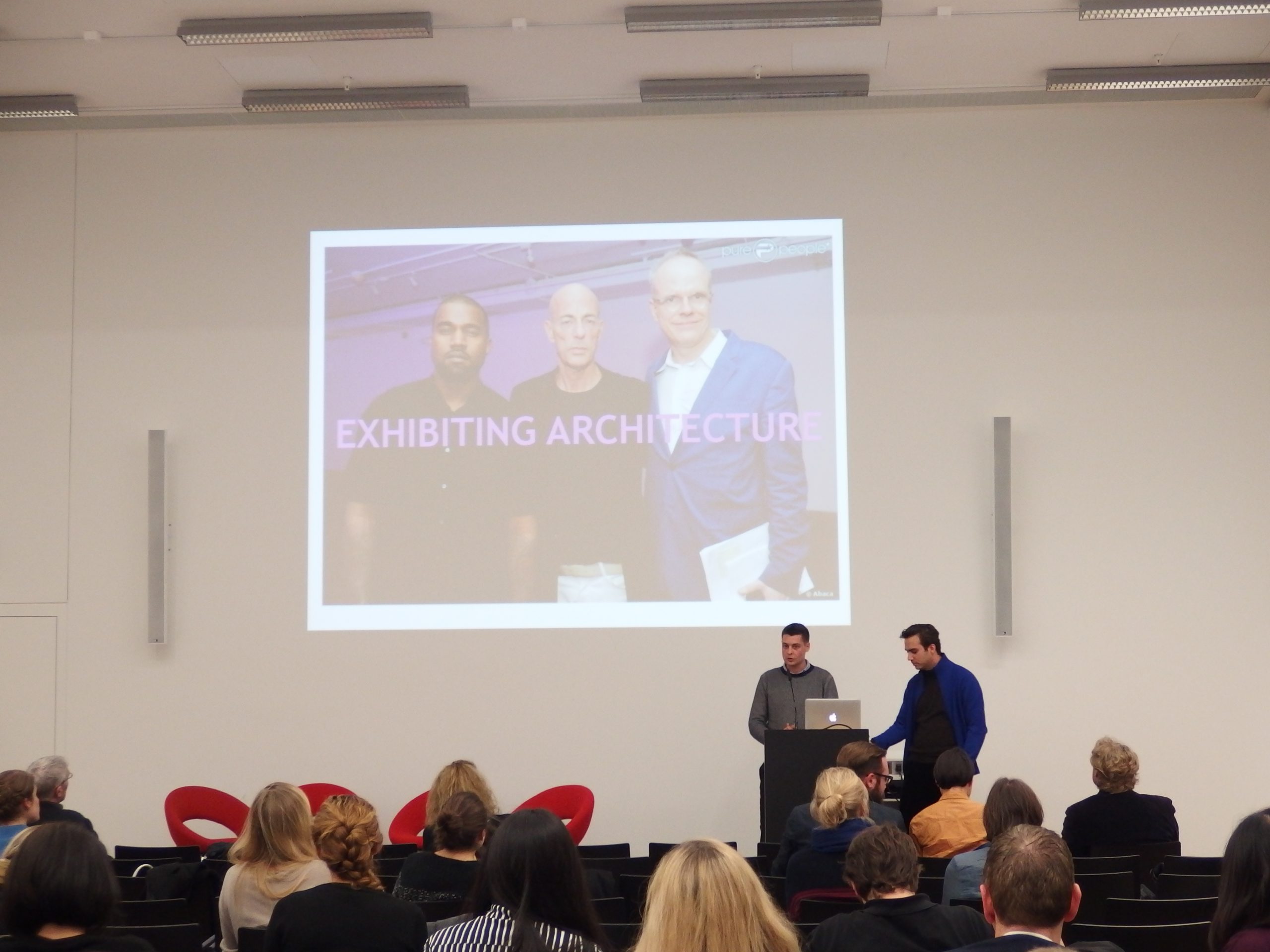
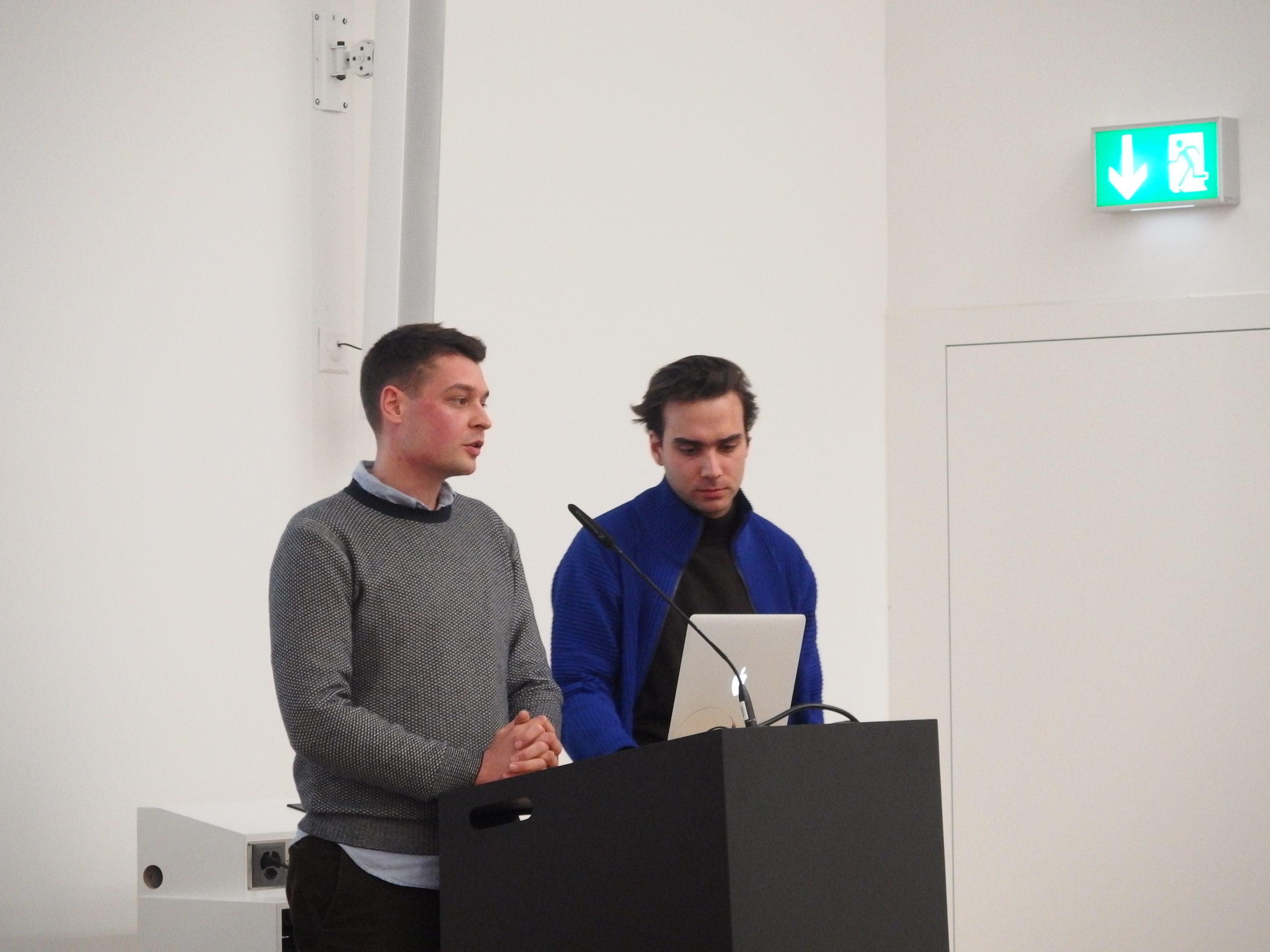
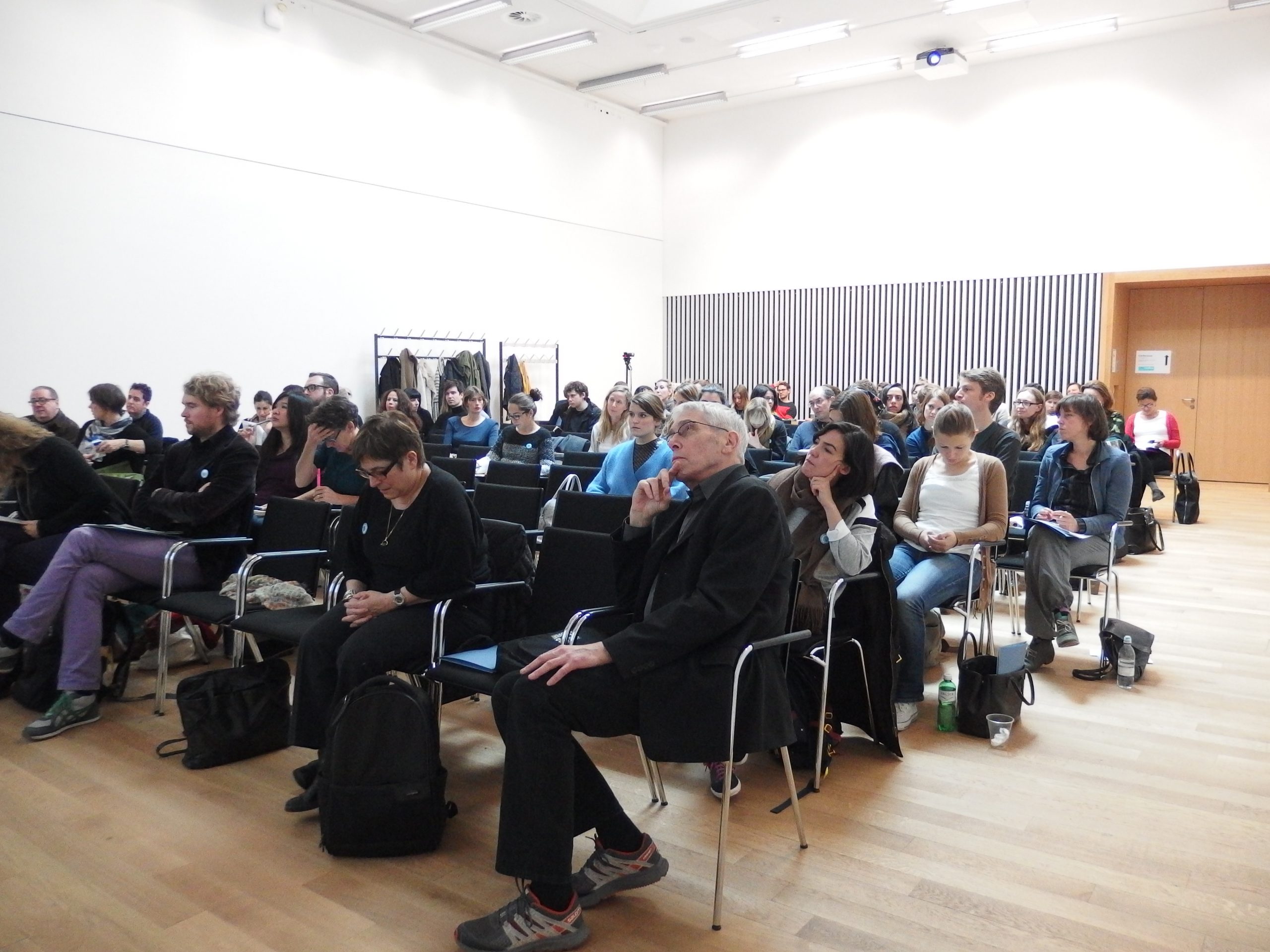
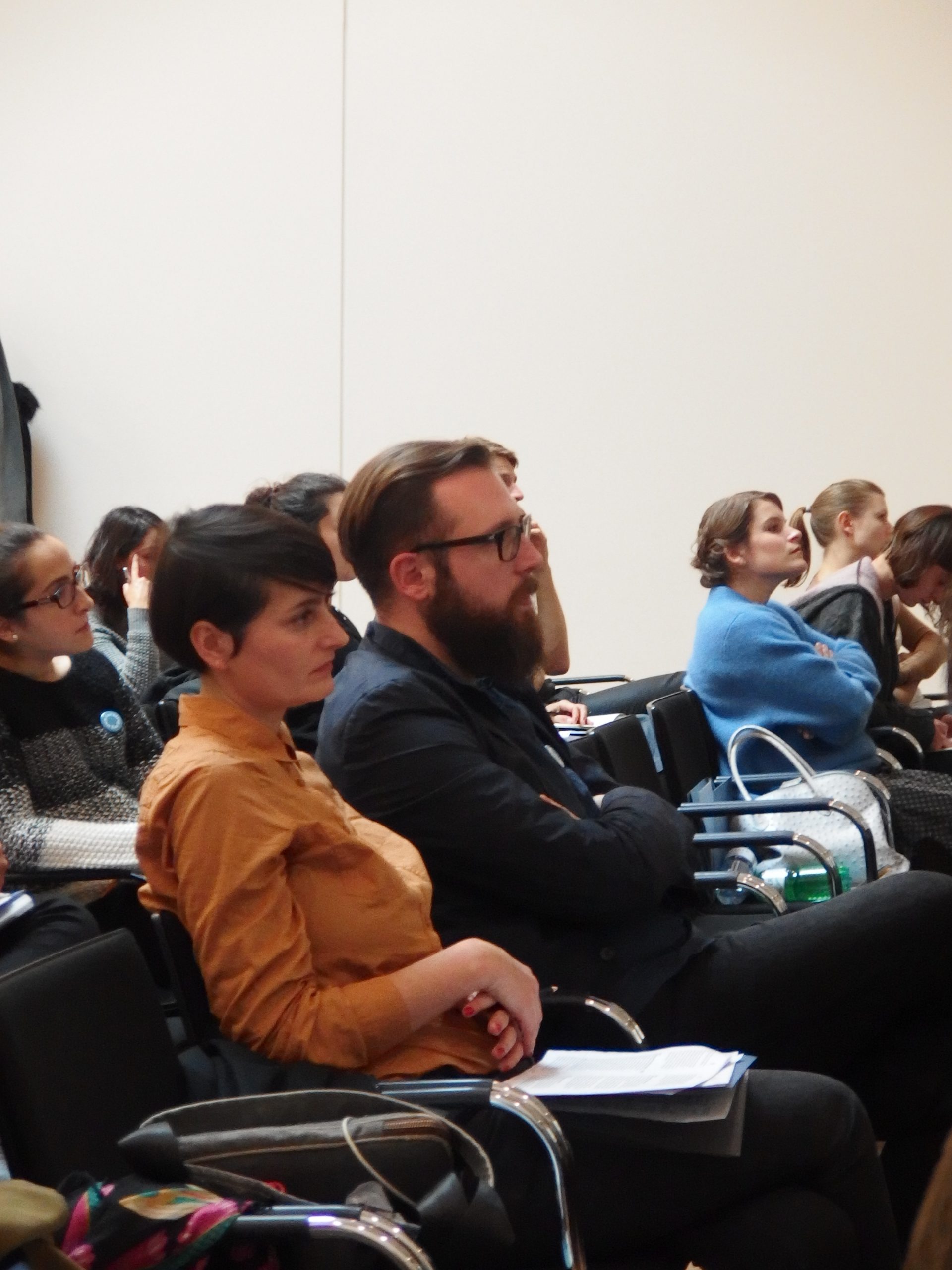
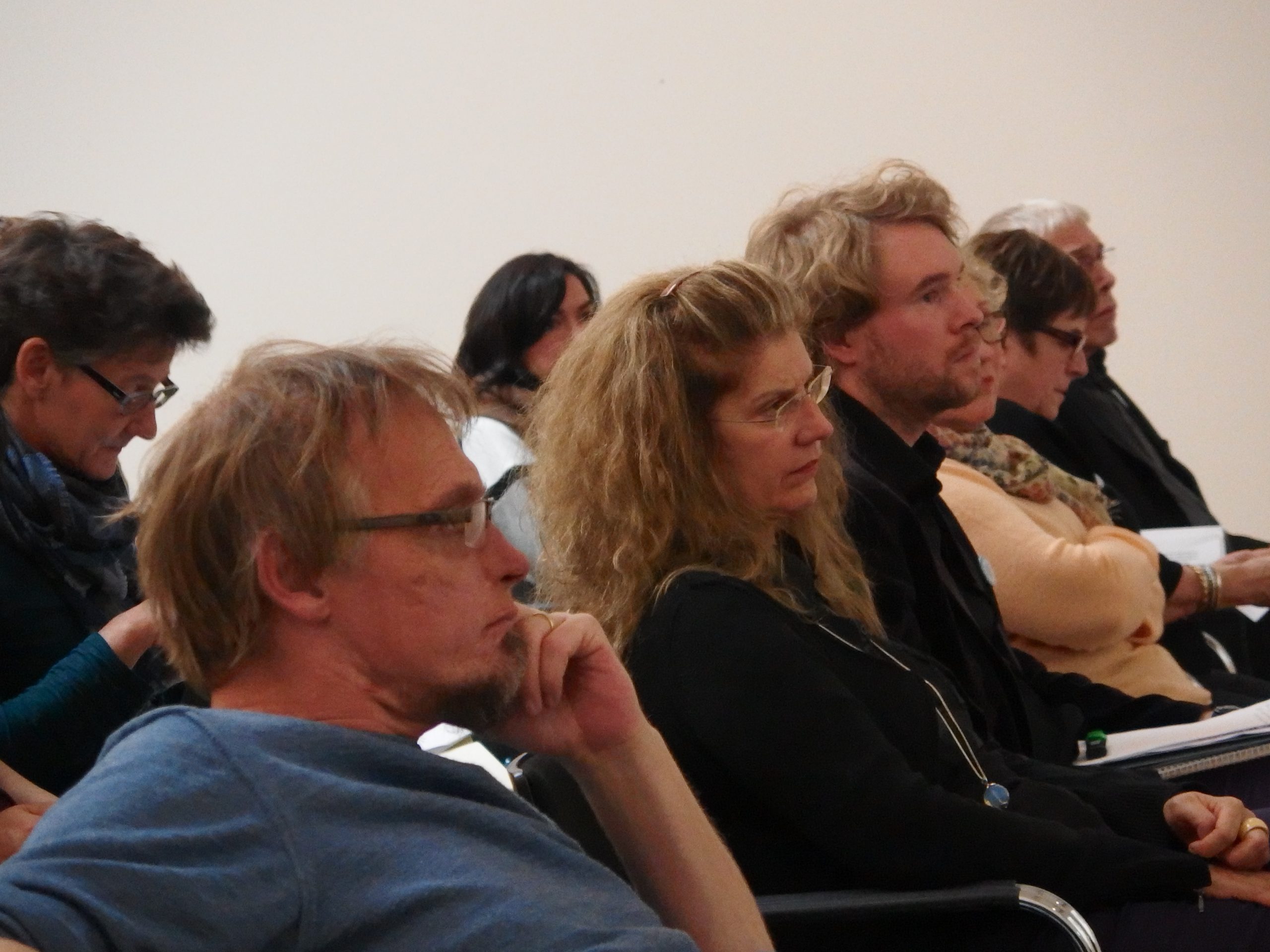
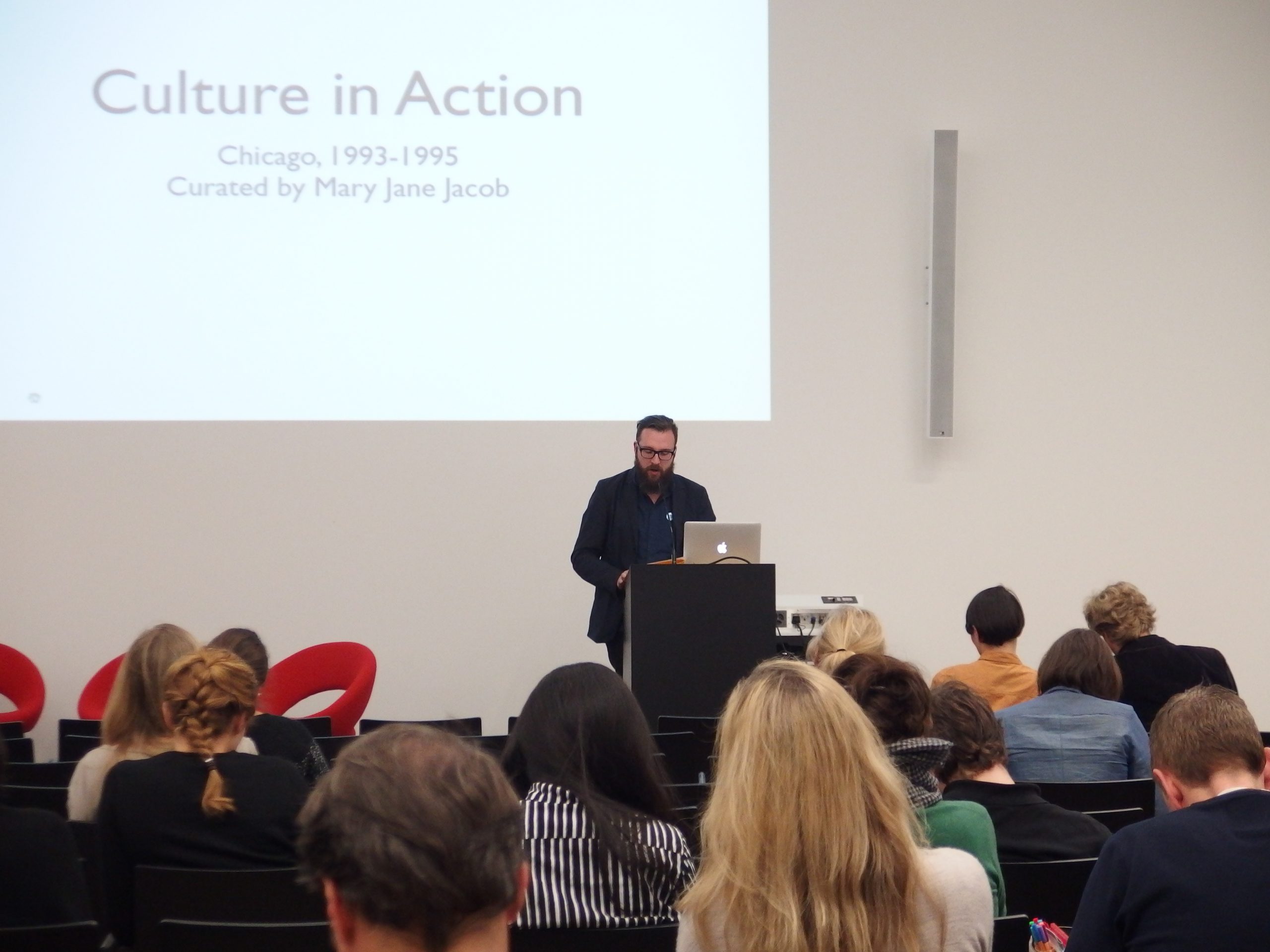
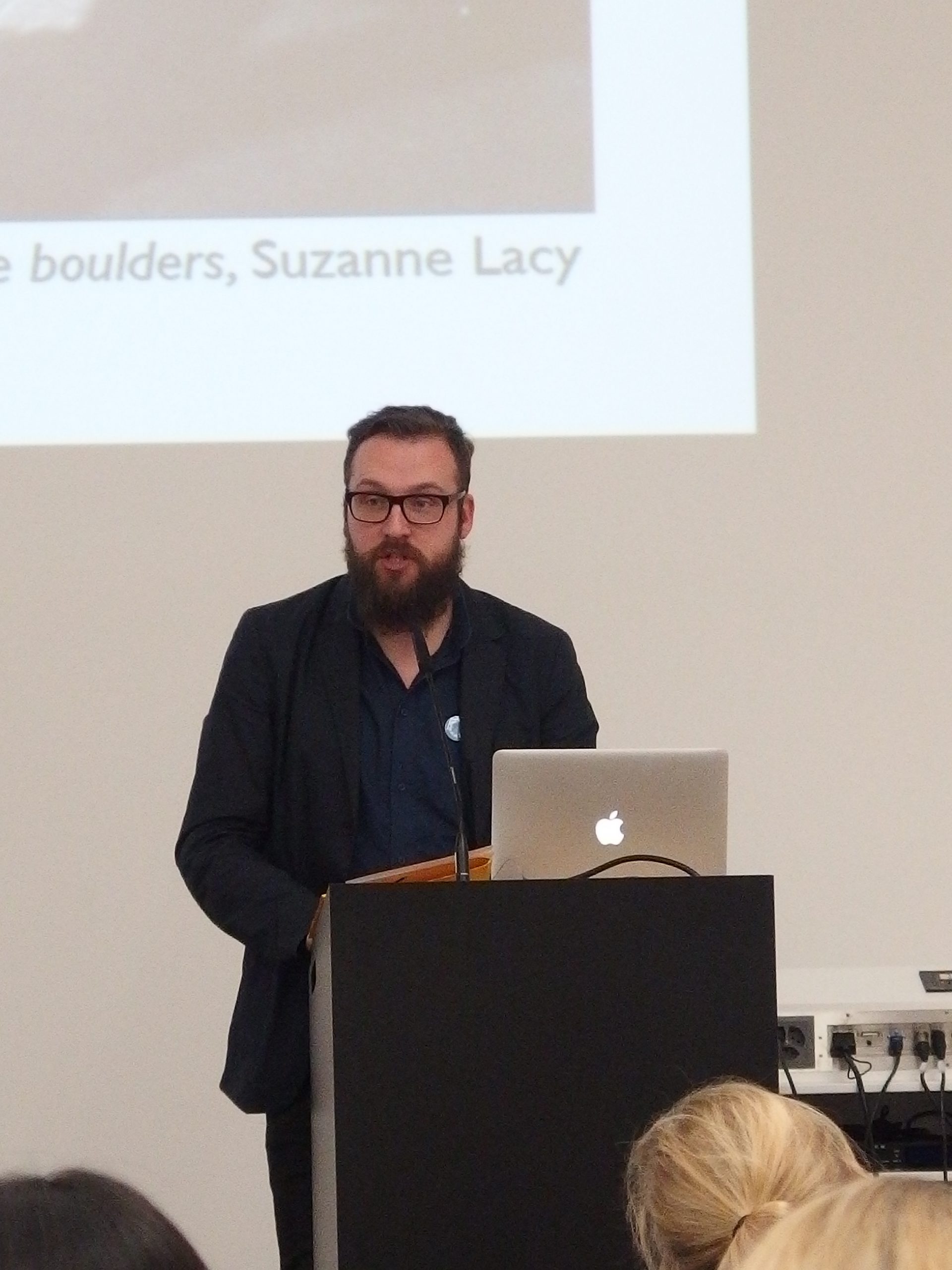
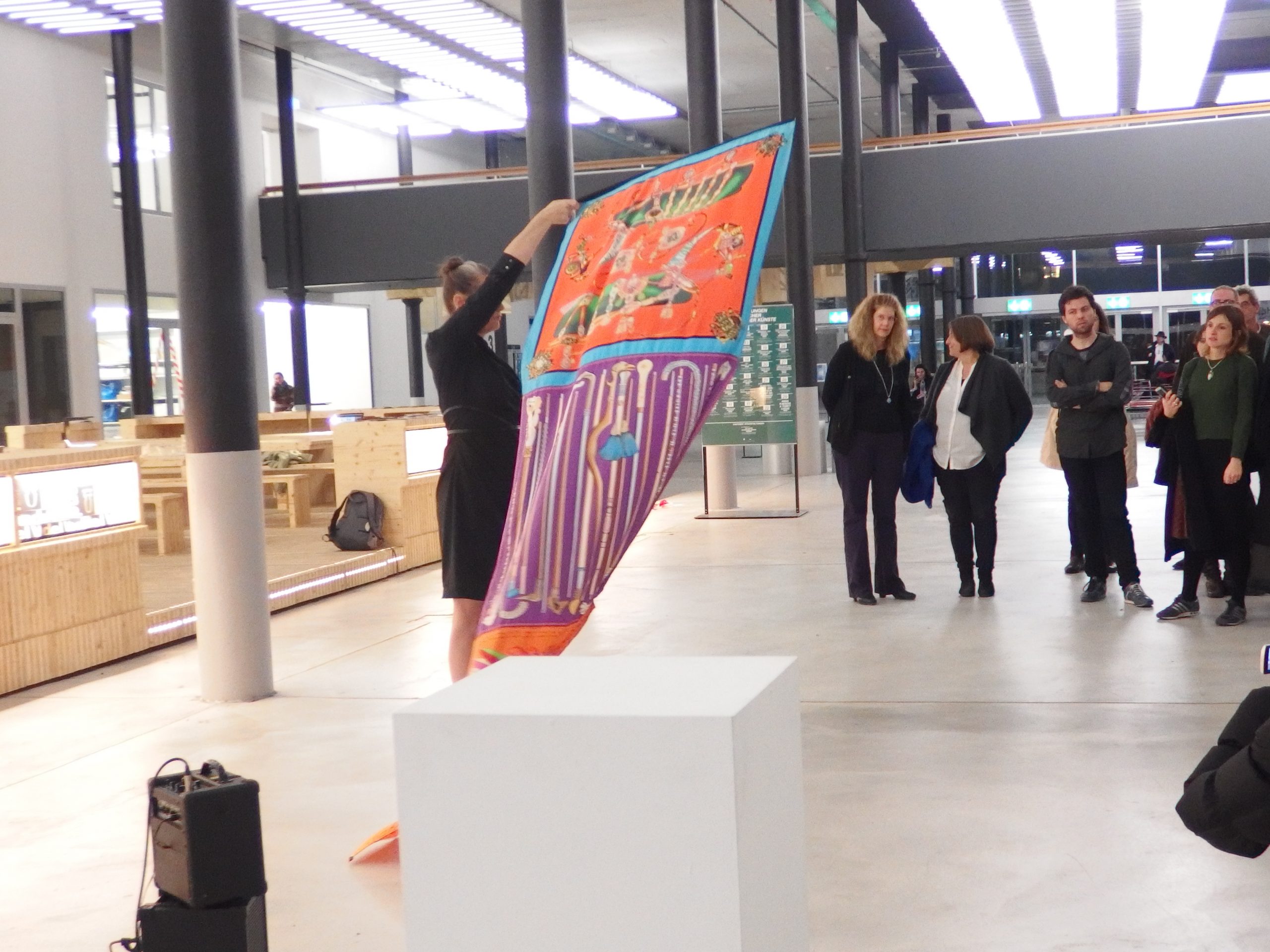
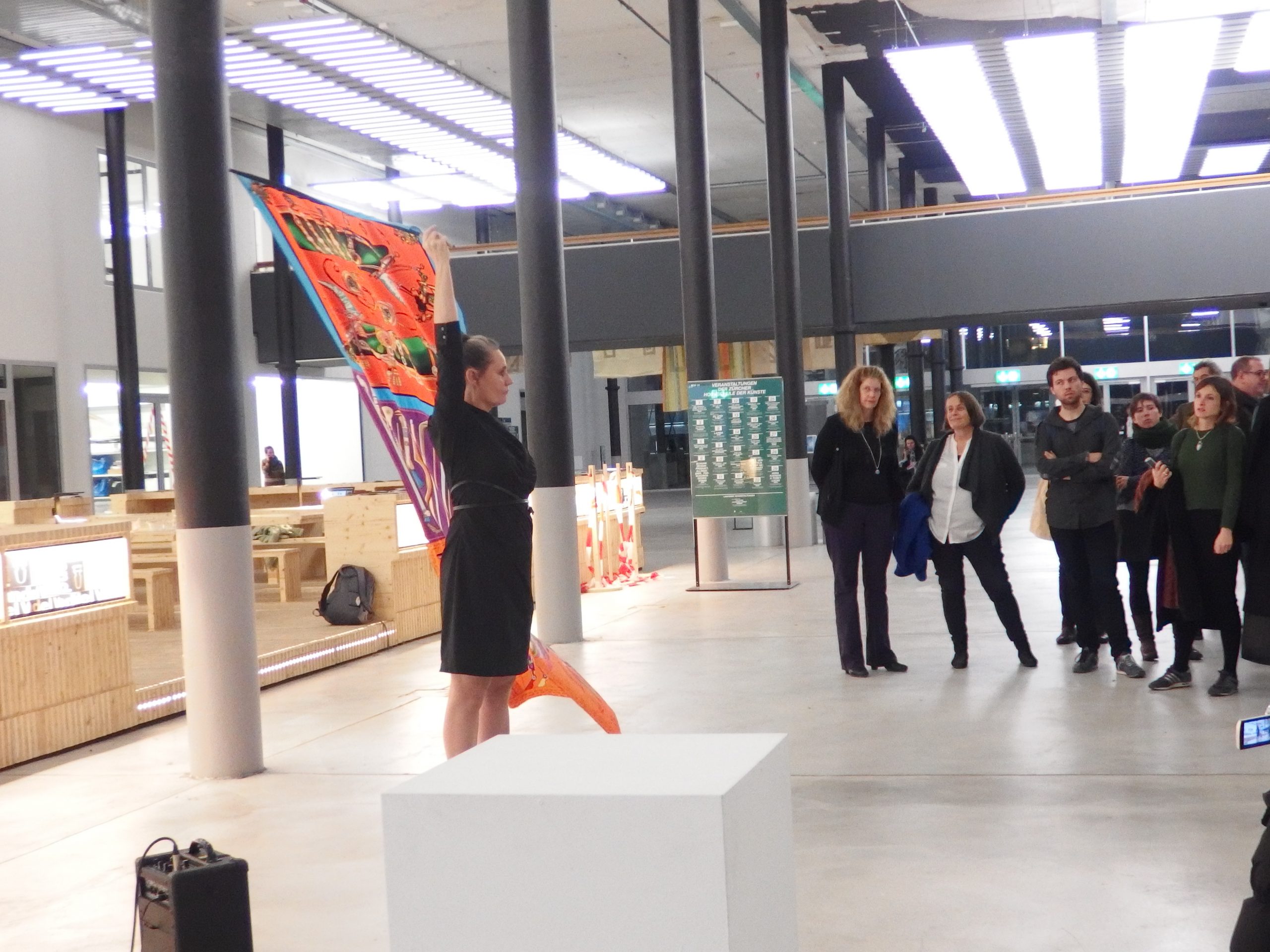
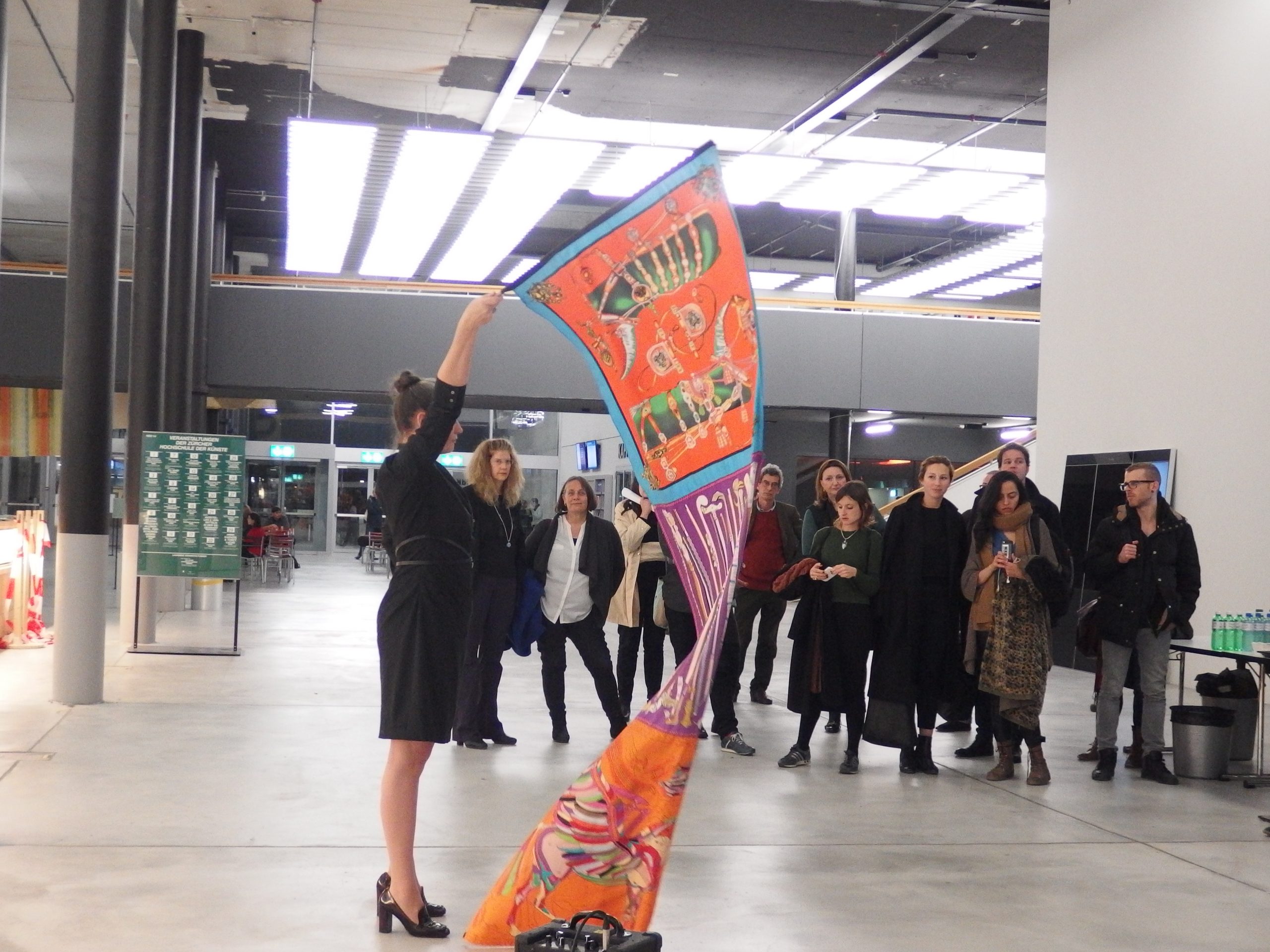
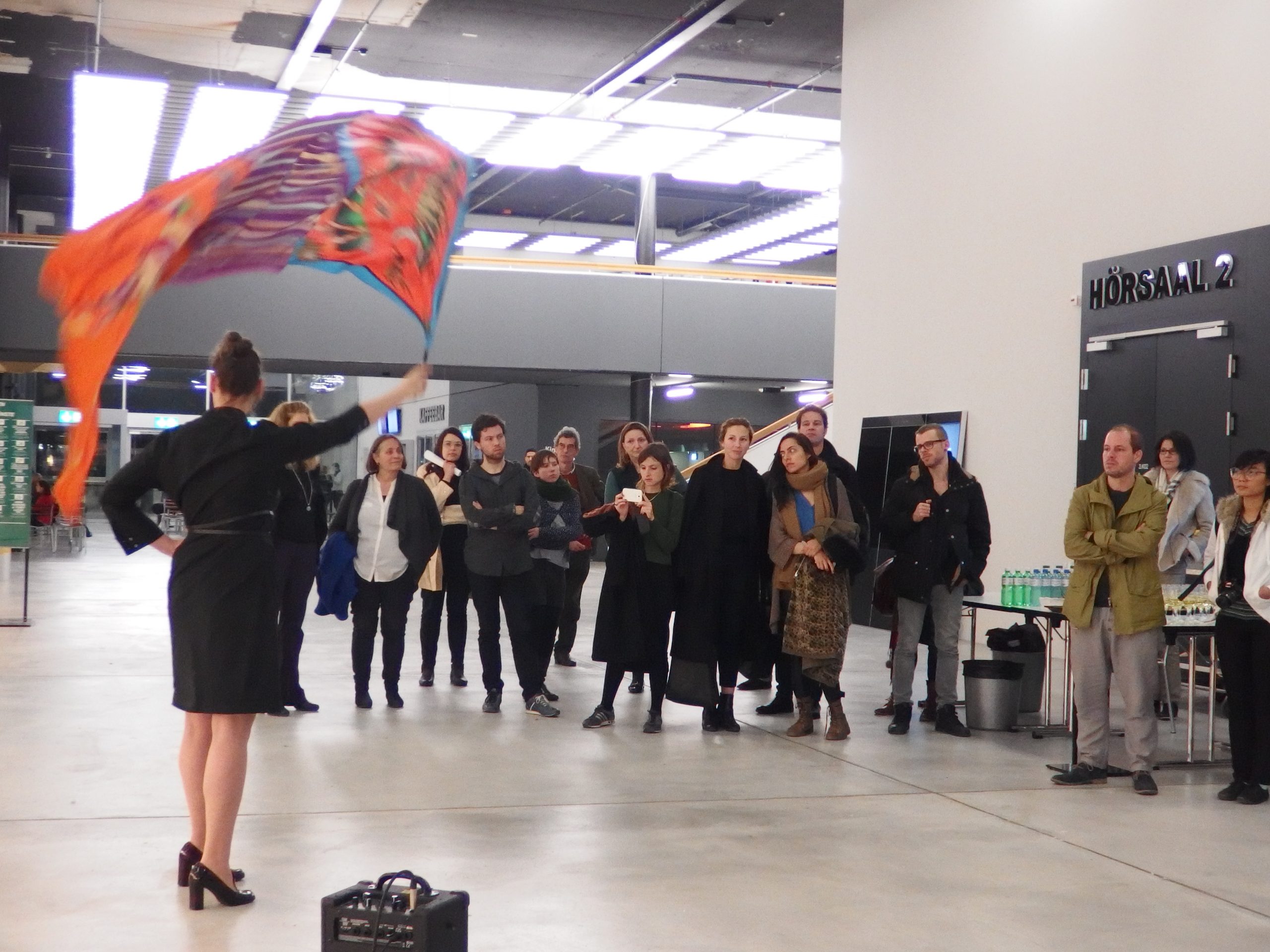
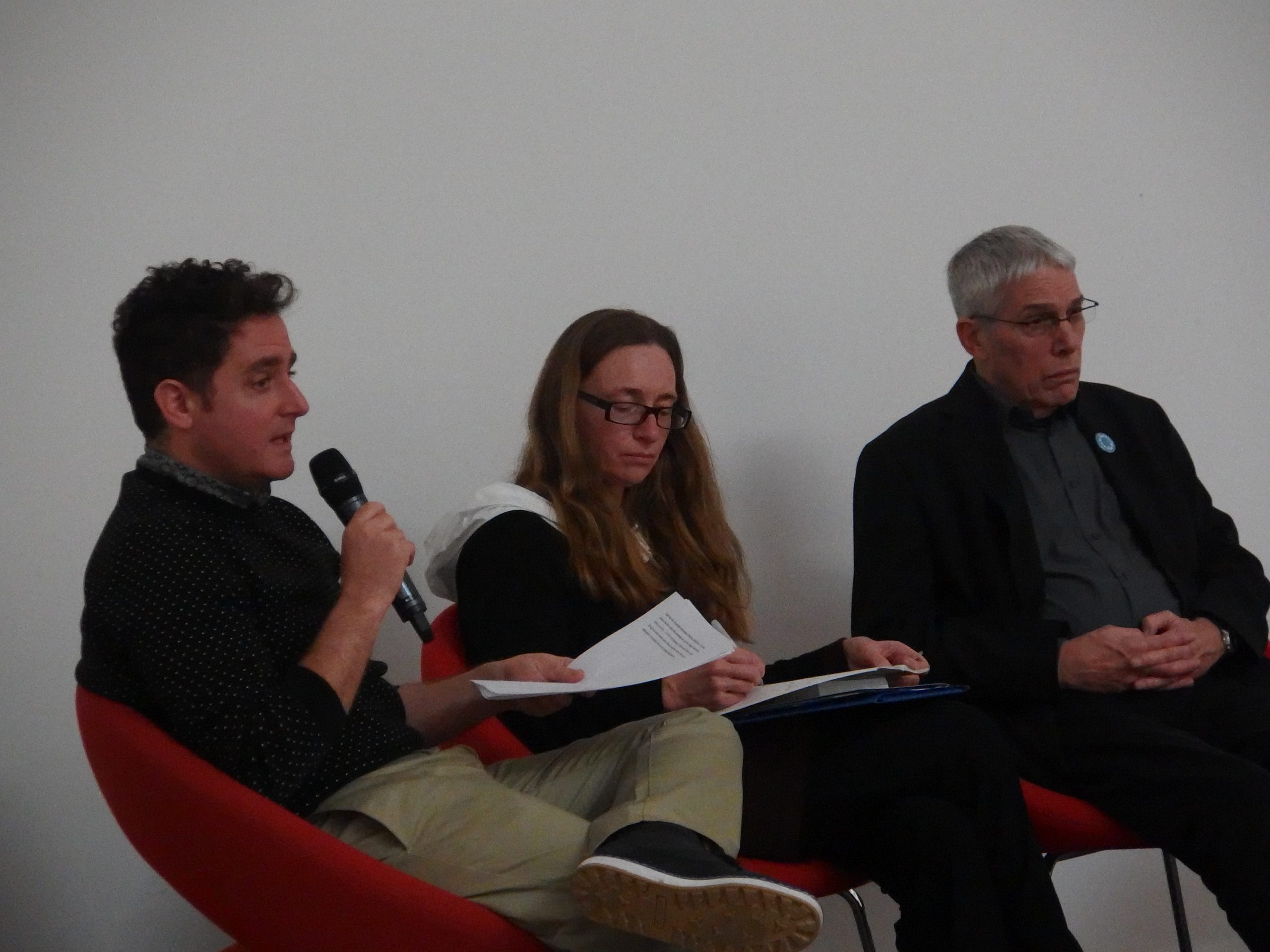
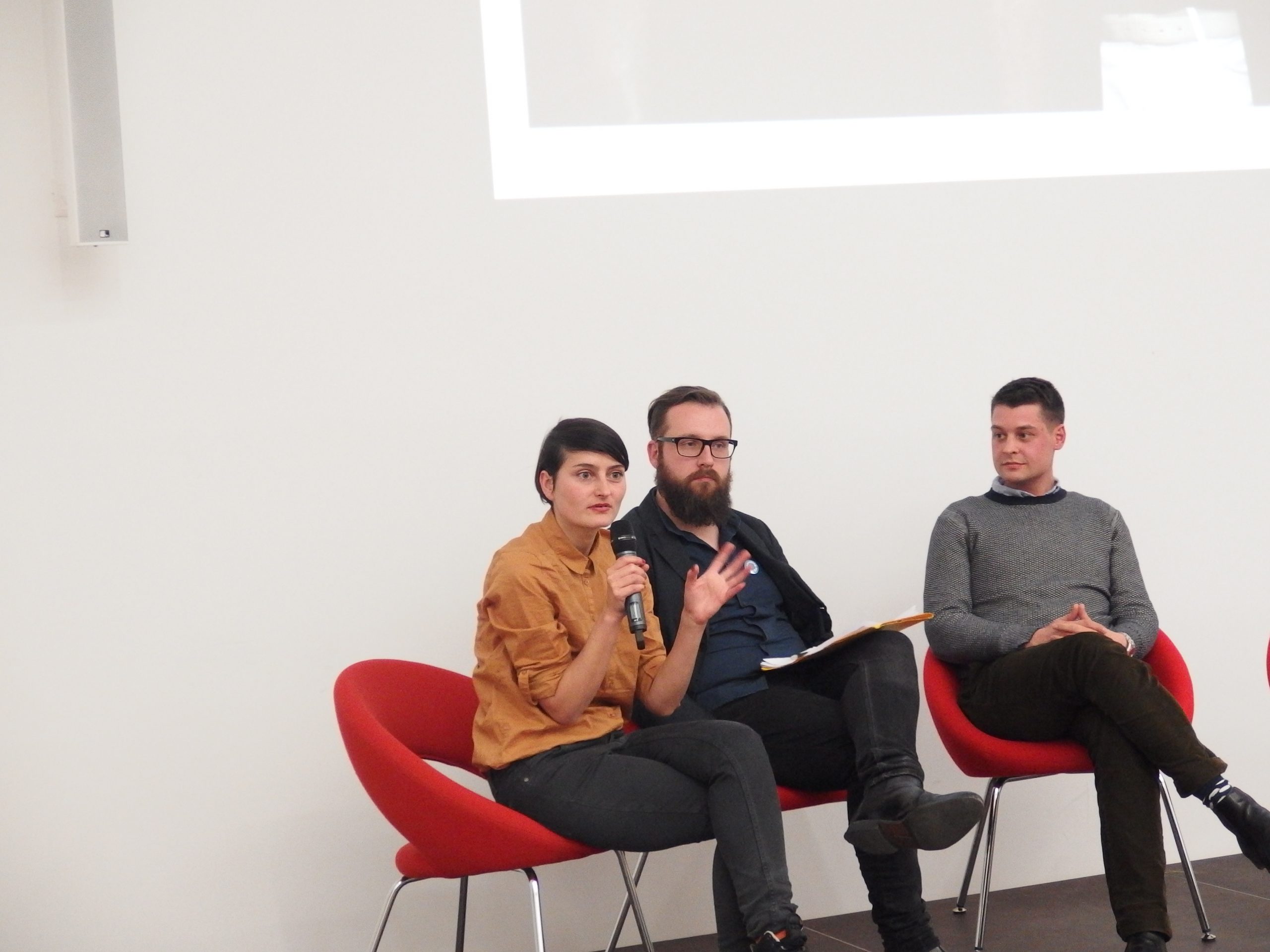
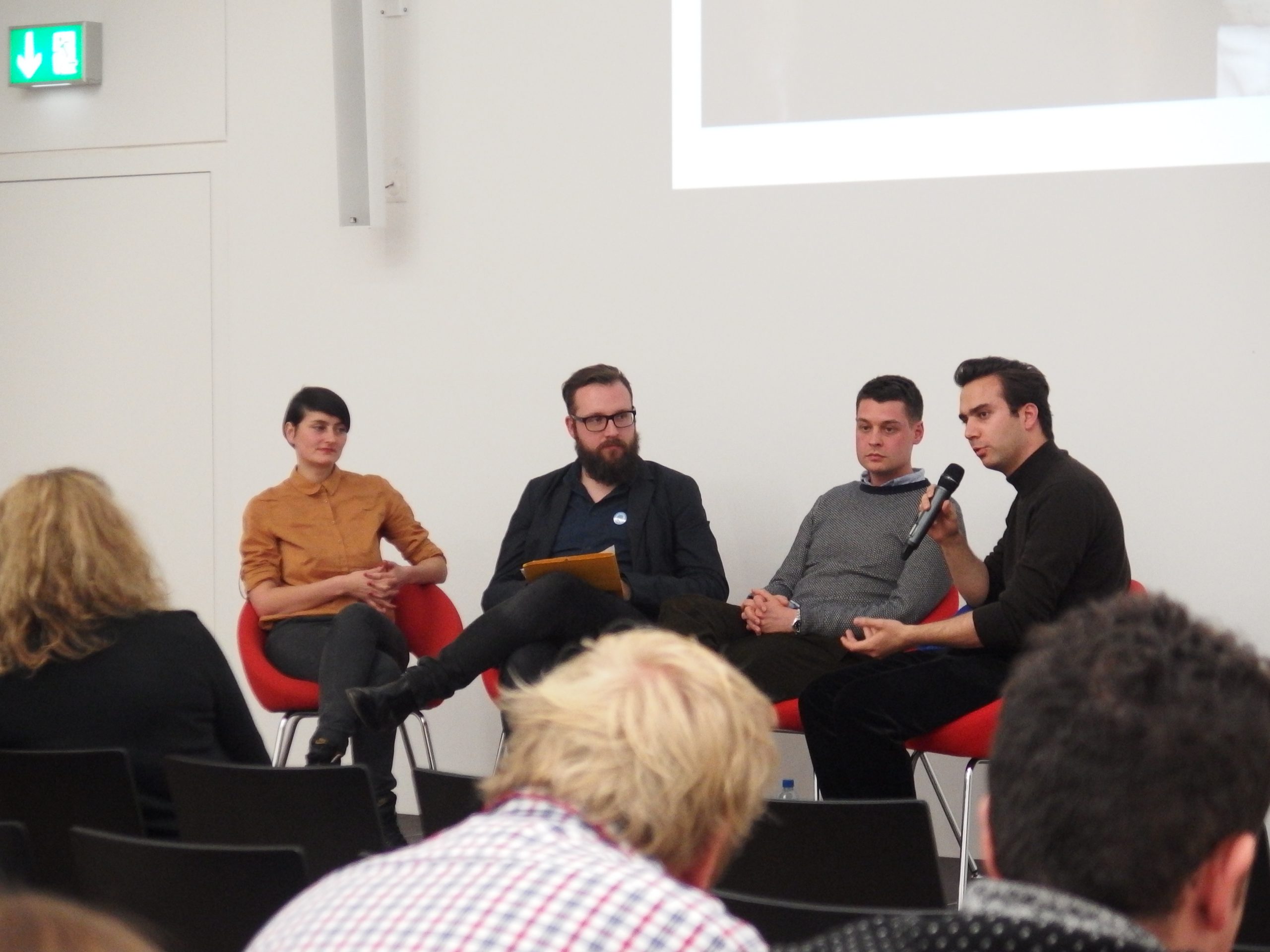
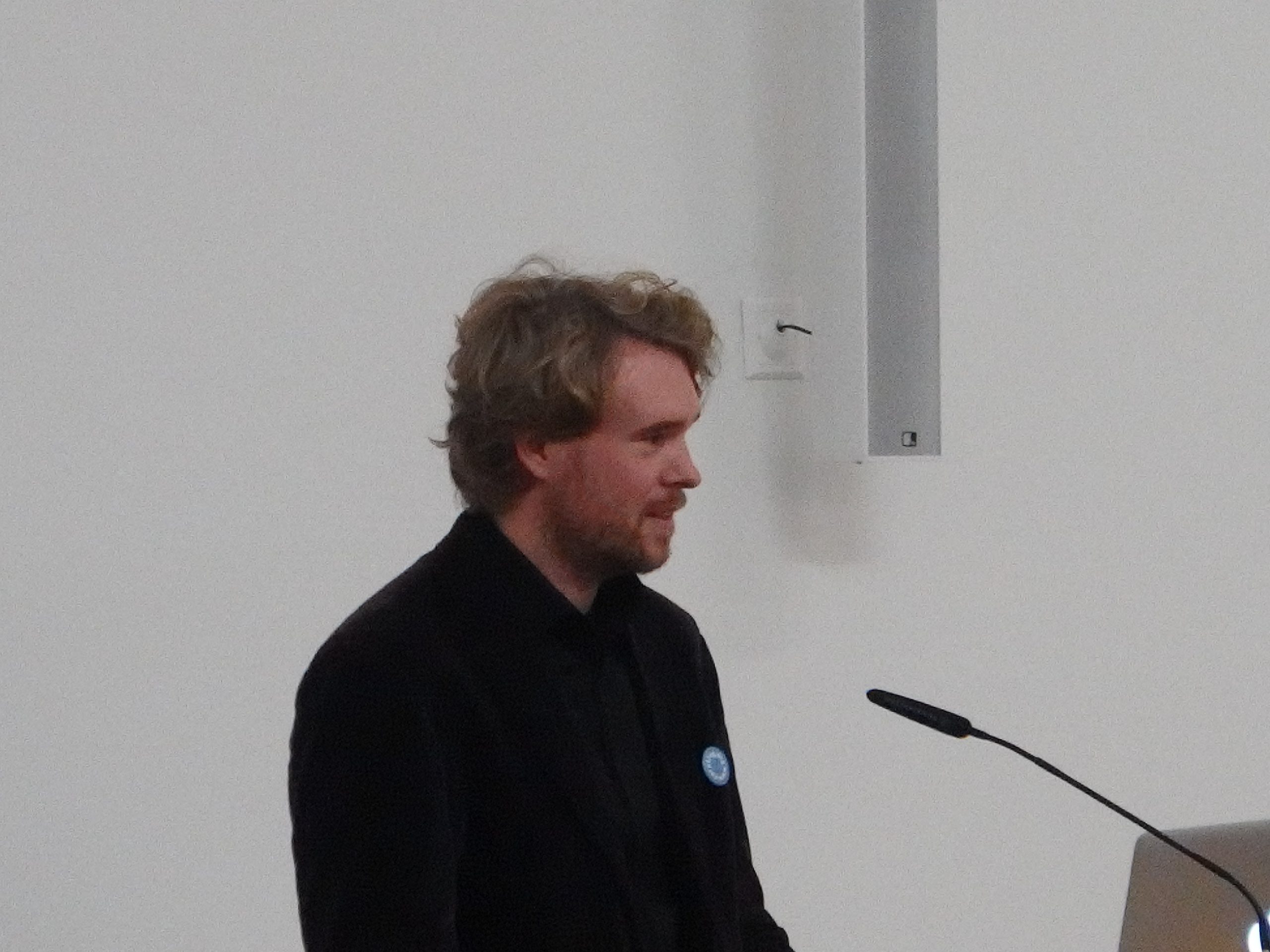
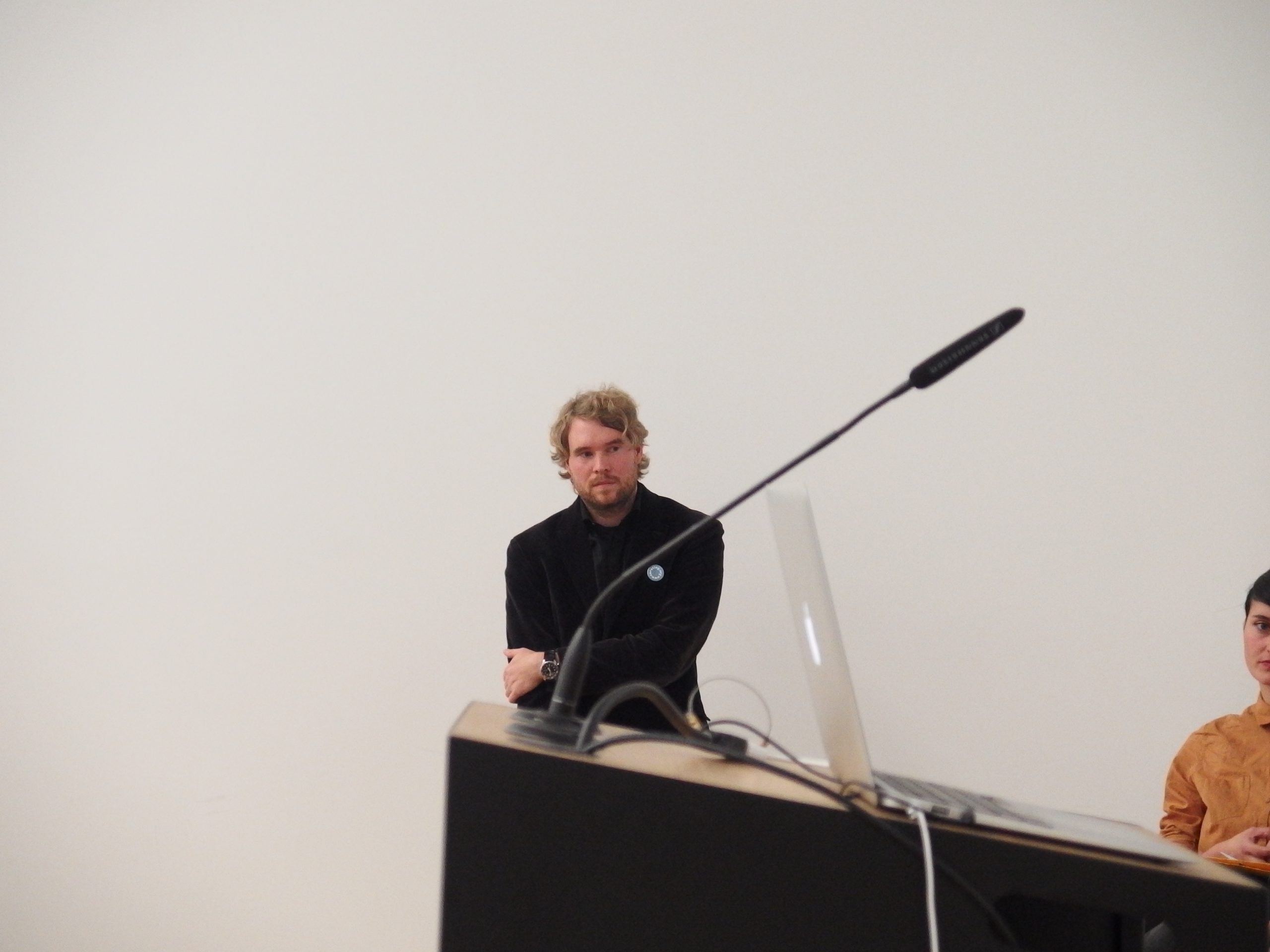
Nov 2014
A Conference on Curatorial Knowledge Production
Sigrid Schade and Dorothee Richter
Outline of a theory of curating
Felix Ensslin
What is the Subject and Discourse of Curating?
Elke Krasny
Curating as Caring. Mapping Affinities, Affects, Feminist Durationality, and Solidarity
Avi Feldman
Curating the Law – Reflection on Contemporary Art and Law
Allan Siegel
Museums, Curators and Precarious Democracies
Szuper Gallery
Video: Work/Arbeit/Rabota, 2009, 15 min
Julia Moritz
Curating Theory – Tendencies, Tools, Trouble
Michael Birchall
Shifting power: the Curator as Producer in Socially Engaged Art
Fredi Fischli and Niels Olsen
Curating Architecture
NANA&FRIENDS (Fender Schrade and Nana Hülsewig)
Performance: Only Strong Characters Can Surrender, 2014
Curating as a glittering myth, curating as a social symptom, curating as a revolutionary force? This last aspect of art/curating has been the hidden driving force behind many curatorial projects. An argument can be made on the basis of various theoretical approaches how art has an impact on social conditions, how it can achieve a political dimension after all. Jacques Ranciere argues that certain forms of art, namely the aesthetic regime of visibility, express “equivalence” or “equality”, and that this is true of postmodernism. This viewpoint can also be critiqued from a perspective which takes into consideration the power struggles in the art field.
Contemporary curating exists as a media conglomerate, the production of meaning is achieved through a combination of artworks, photographs, commentary, publications, design, gestures, music, film, press releases, websites and interviews. It is situated in a specific political and cultural context. To analyse these complex situations we need a variety of approaches, for every project the combination could alter, it makes a bricolage of methodical approaches necessary.The Research Platform for Curatorial and Cross-disciplinary Cultural Studies, Practice-Based Doctoral Programme, University of Reading, Fine Art Department of Art in cooperation with the Postgraduate Programme in Curating, www.curating.org ICS, ZHdK presents: Curatorial Knowledge Production